Submitted by WA Contents
Atelier tao+c creates a crystal-like showroom with two stacked timber volumes in Beijing
China Architecture News - Apr 24, 2023 - 11:51 3464 views
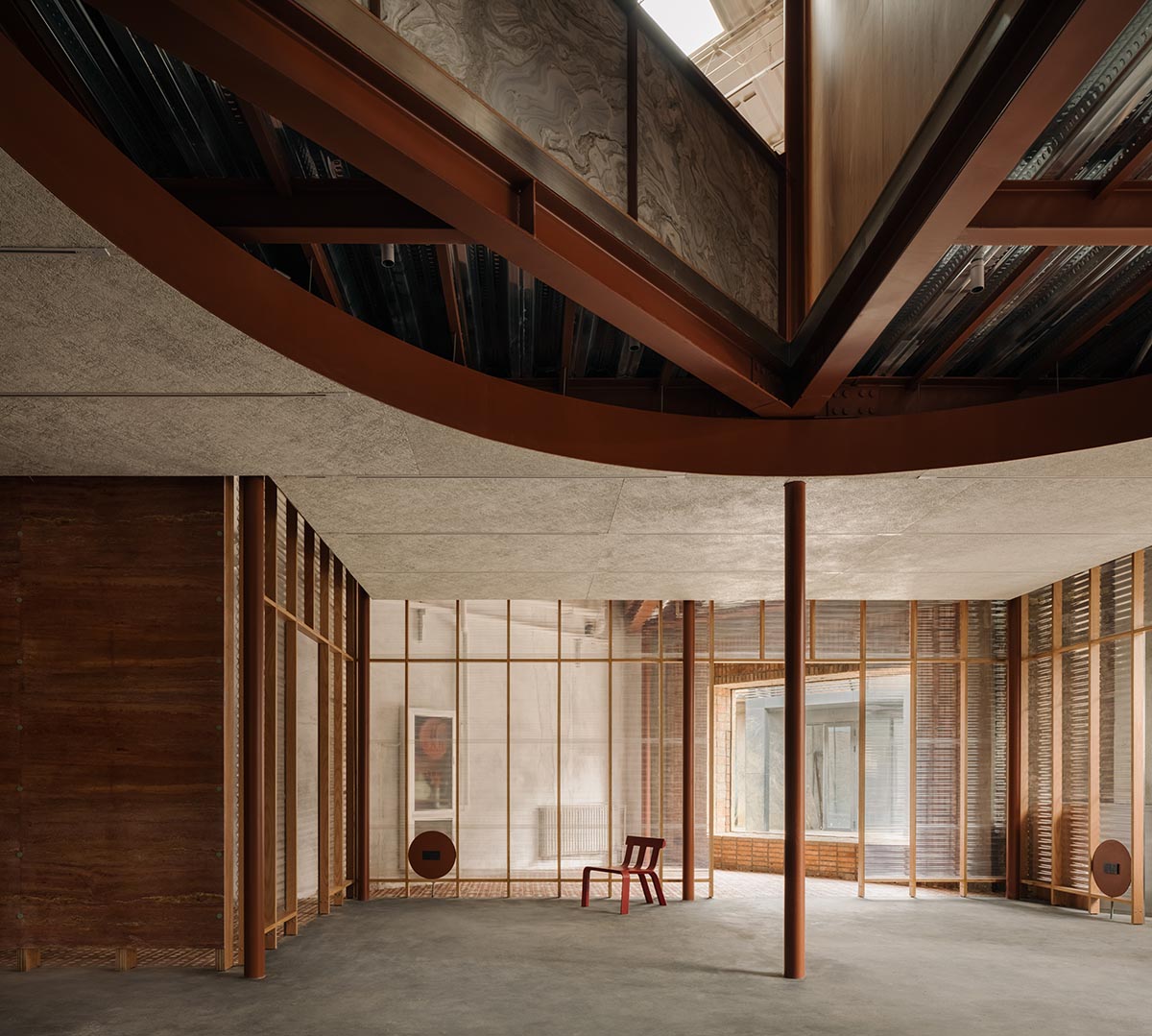
Chinese design firm Atelier tao+c has converted an old textile warehouse into a showroom for emerging furniture brand ZIIN in Beijing, China.
Named ZIIN Beijing Store, the 186-square-metre showroom, located in Beijing, looks like "a crystal-like structure" popping out from the industrial brick textile warehouse built in the 1960s.
The two-storey building, situated as part of Langyuan Station, was originally desiged as a warehouse featuring a pitched roof and brick walls built in the 60s from last century.
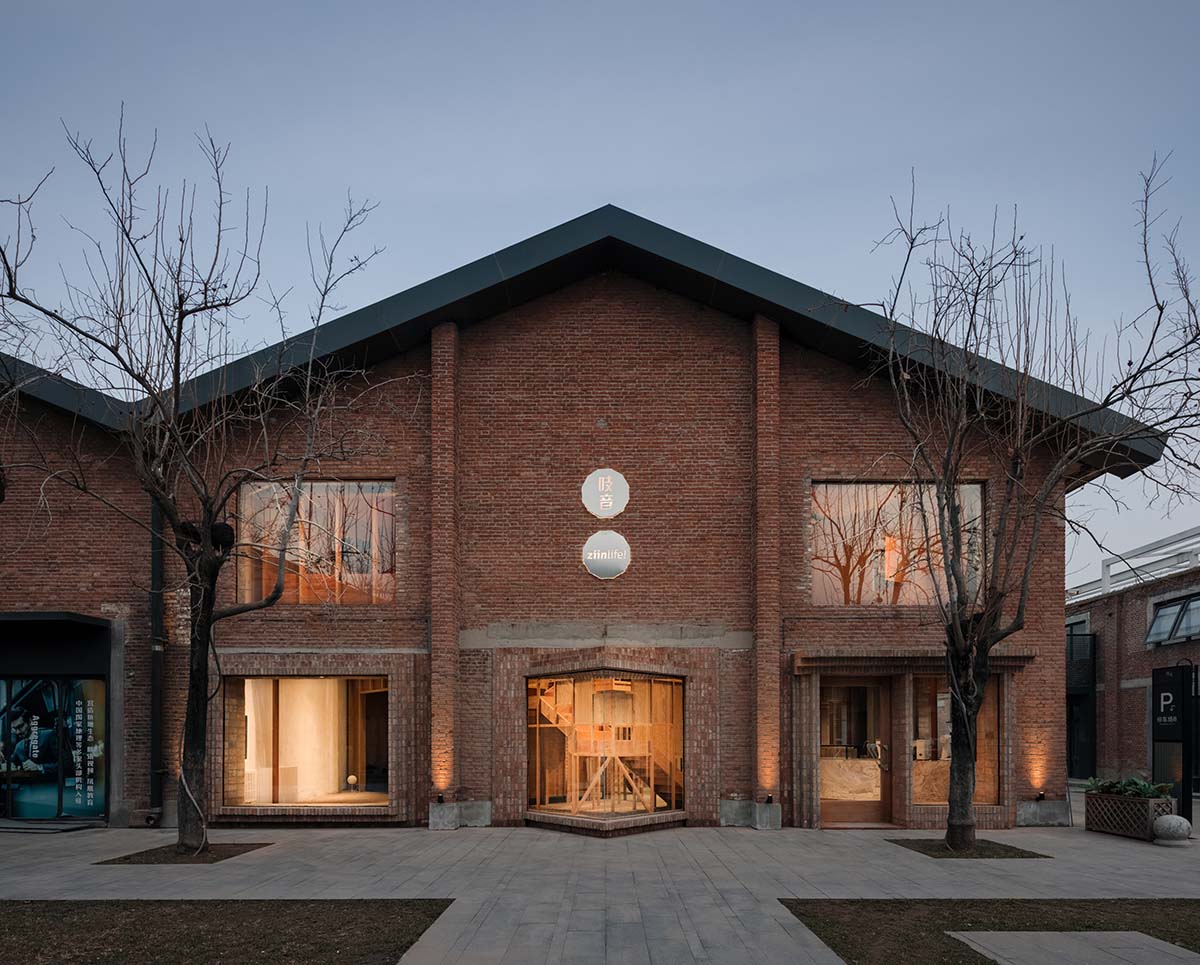
To elevate this beautiful brick structure, Atelier tao+c used two intersected square frameworks, which were meticulously rotated at 45 degree.
The studio wanted to maintain the interior structure as an individual building while also connected to the original brick wall, which forms a separate “house within a house” journey.
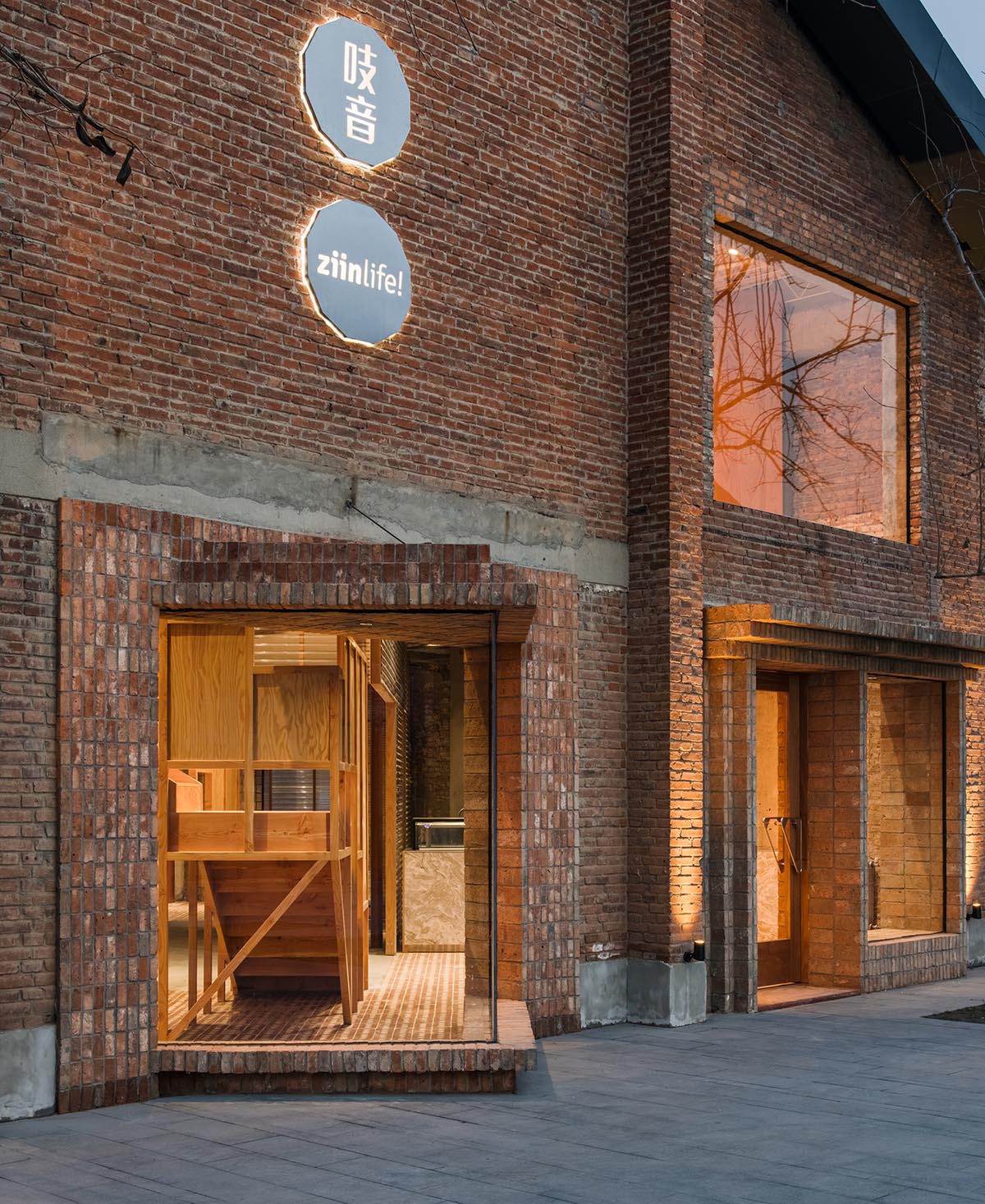
The design team paid attention to create a balance in between the existing site with new functions, exhibition and sale, background and objects in the aged industrial space.
The showroom, which contains complexity in itself when viewed from the outside, offers a flowing circulation open to discovery in terms of the richness of the spaces.
To achieve this, the team devised the two interlaced frameworks that were treated divergently in transparent and solid, establishing a crystal-like structure.
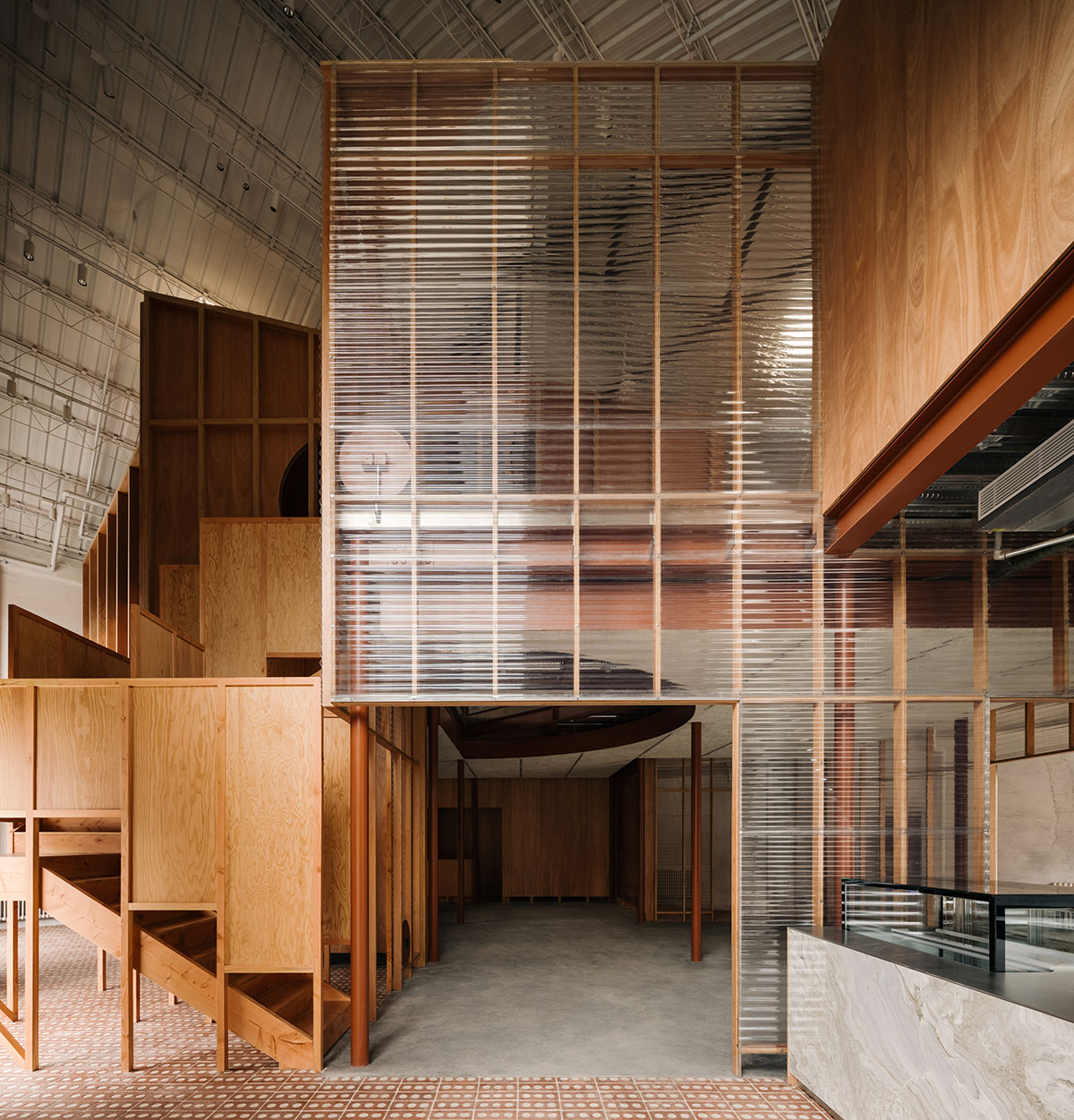
"The first hint of the interior space is suggested to the public by a transparent house, cladded with corrugated polycarbonate panels," said Atelier tao+c.
"Most days, the sunshine is welcomed from the south window through the front house to the back one wrapped in timber panels, proposing the overlapping relation of the two stacked frameworks."
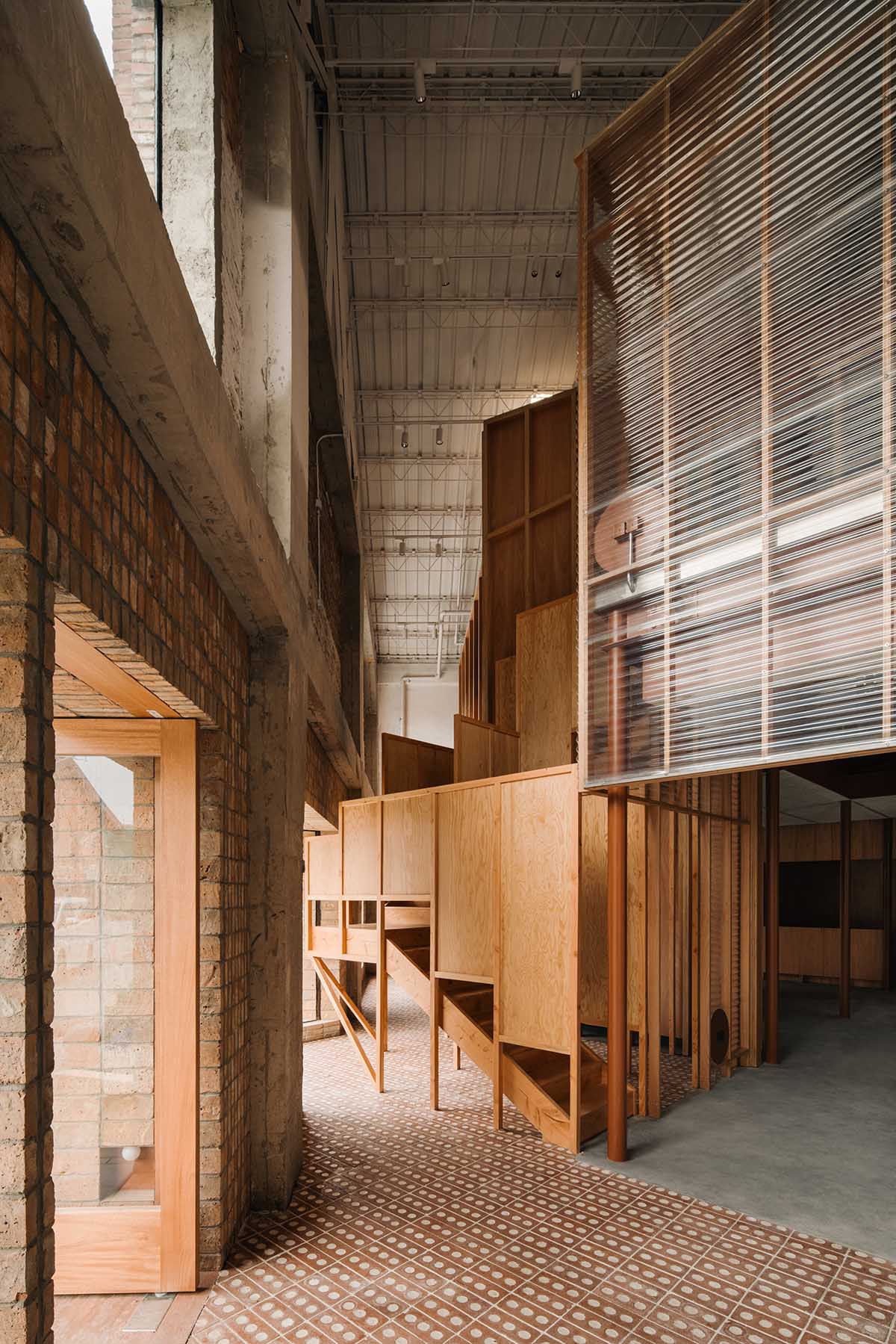
The studio positioned the volumes at 45 degree with the diagonal direction to form a new spatial order and circulation. According to the studio the reason of this was to create a depth both visually and experientially.
Homogeneous rooms in a continuous sequence are carefully organized in two sets of identical columns within the structure, wherein one designated room leads into another.
As the studio emphasized, "this route brings, both for different events and spontaneous gathering, flexible places with different possibilities."
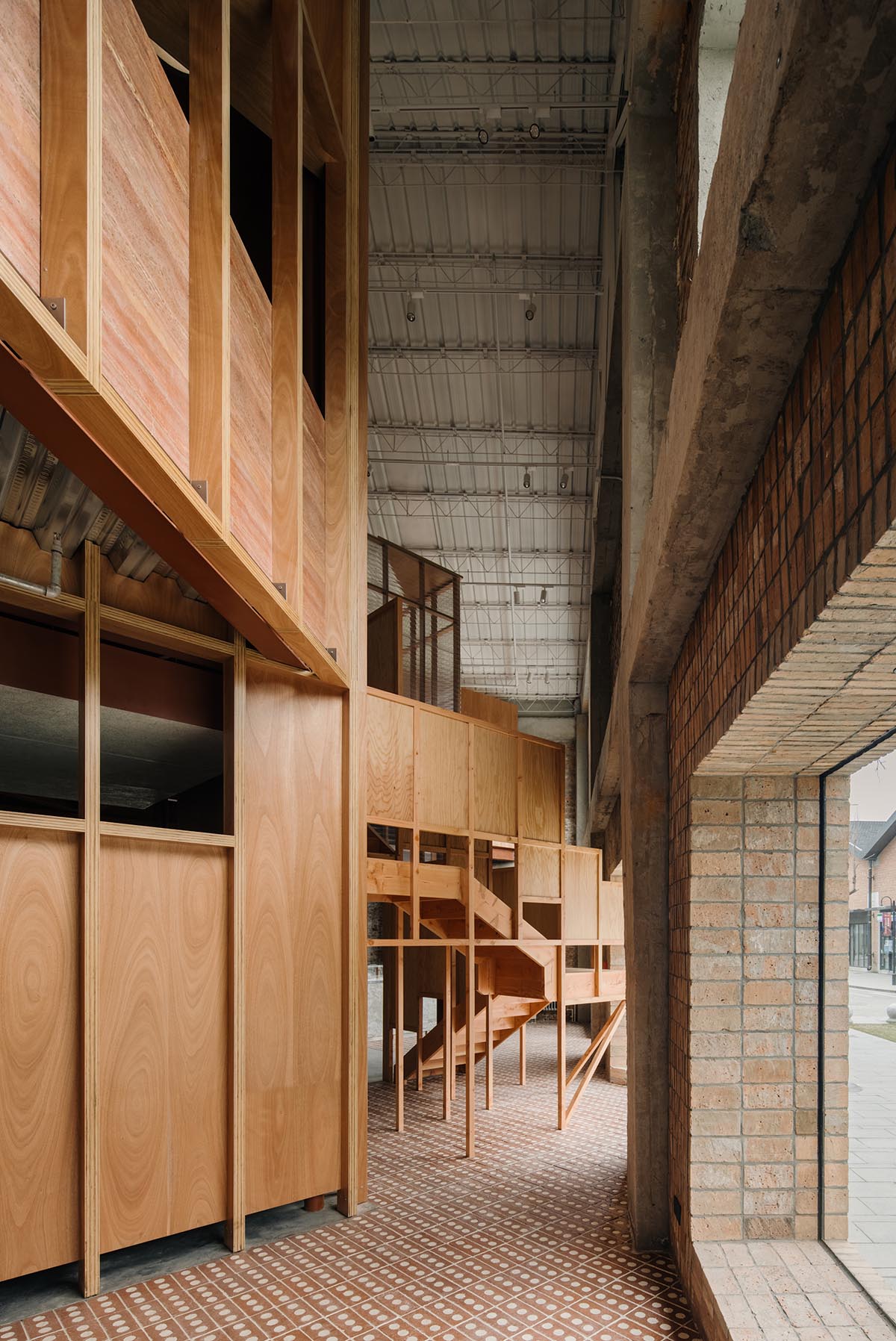
In between the existing brick walls and the new frameworks, there is a negative space that flows along the perimeter, introducing the notion of “semi-interior and semi-exterior”.
On the mezzanine floor, the design team arranged an unexpected space of triangle balcony, pergolas and staircase, which were all adaptively molded into the new inserted dwelling according to the circulation, becoming interesting elements embedded in the project.
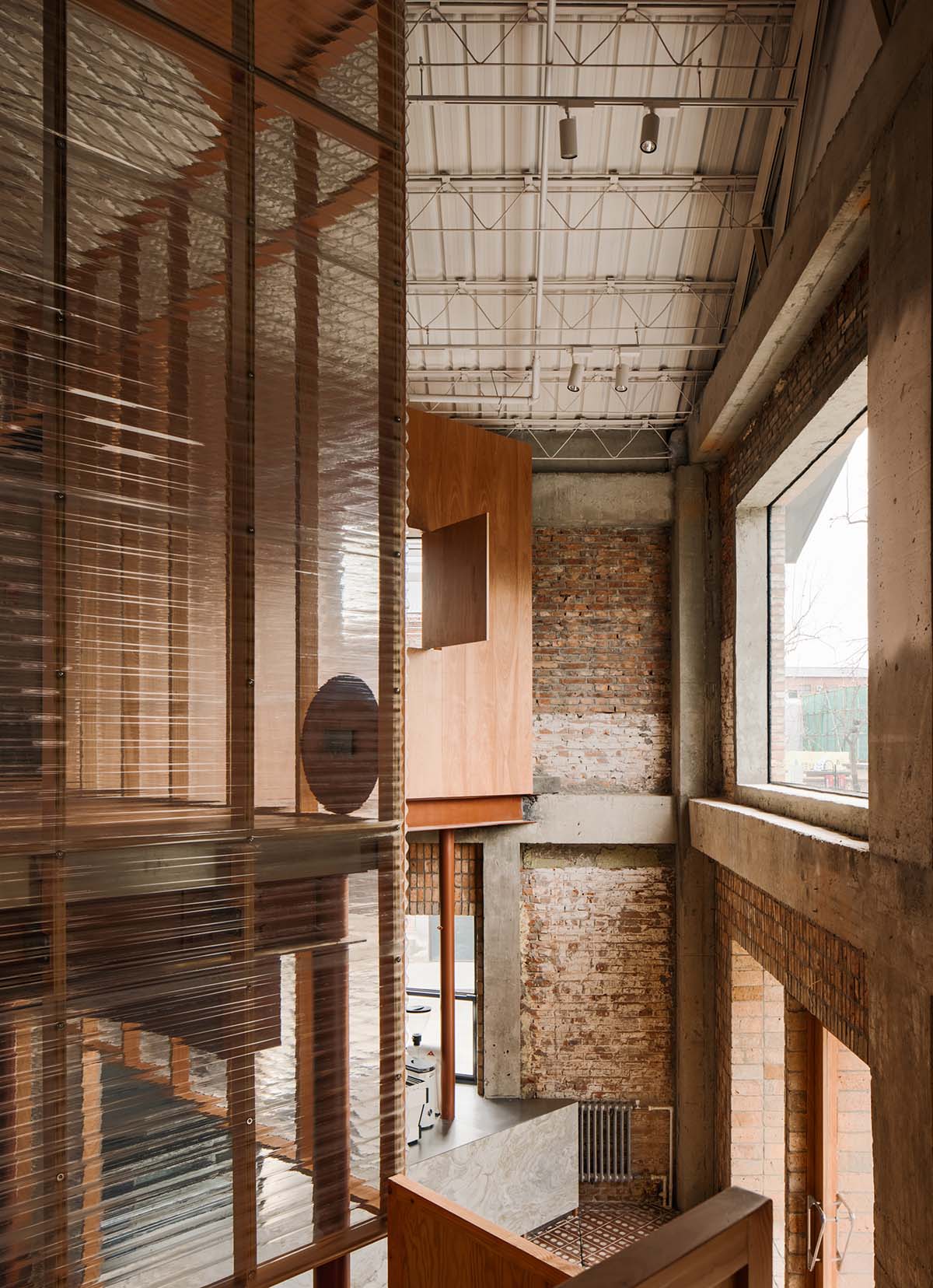
Aiming to create a tension between architectural boundaries and interior components, the studio designed a staircase in a constricted area, ‘seeping out’ purposefully and generating a glass box on the façade in triangle shape.
According to the studio, "these scattered structural elements were employed as an integration while detached from one another, presenting its independence and similarities."
For material choice and construction methods, the team intended to capture the authentic craft of construction and express the narrative of structure itself.
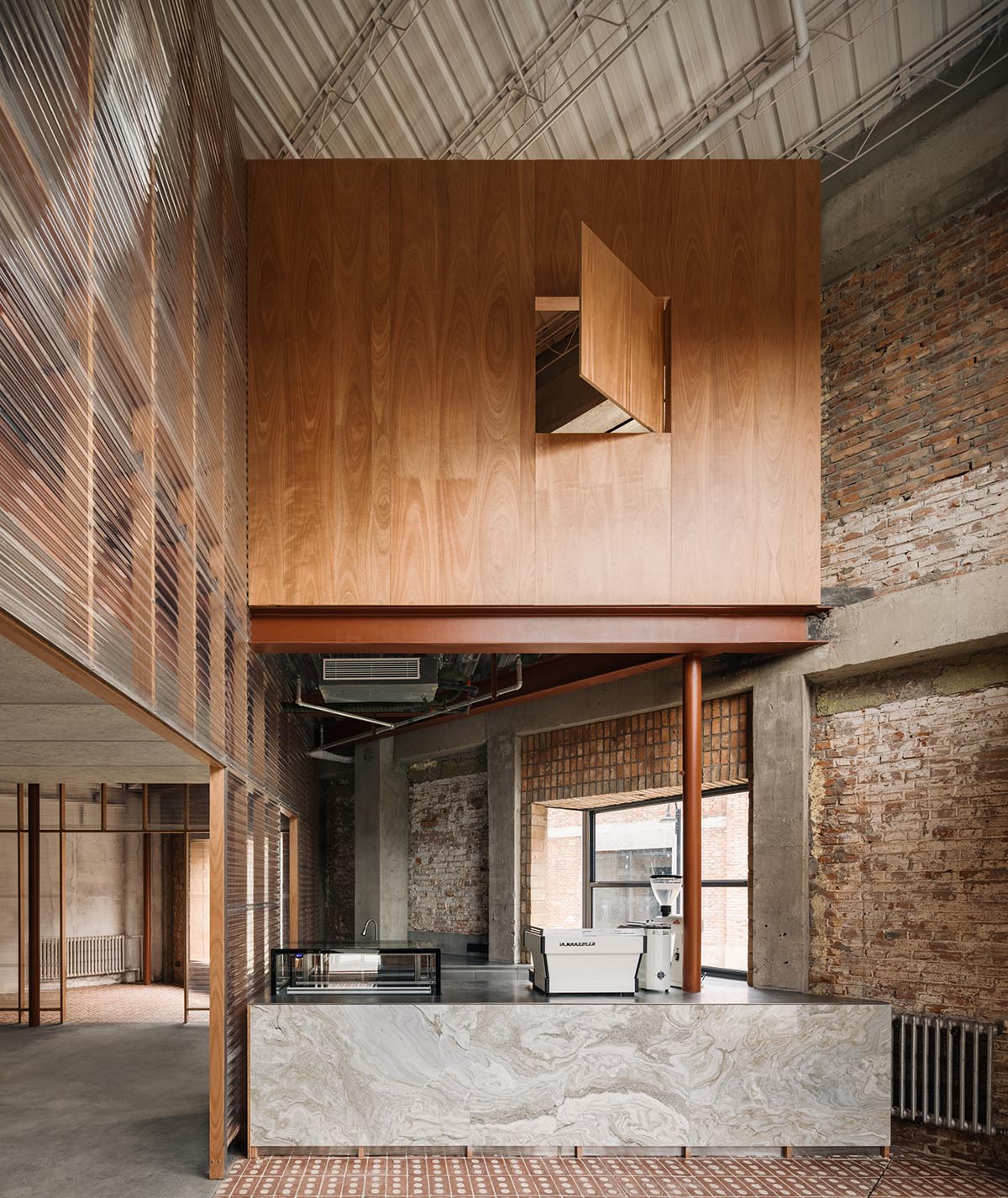
For this reason every component was made visible and traceable starting from the steel structure, timber frame, the substructure of walls to the assembled finish panels.
"Each layer of the structure was superimposed during construction, amplified from the steel floor decks to the I-beam, the ducts, piping layer and the dropped ceiling, simulating layers of the earth, clear and identifiable to the viewer," the studio added.
"They are both the structure and the finish, recording both the design process and the construction process, vividly telling the story of how the frameworks were built."
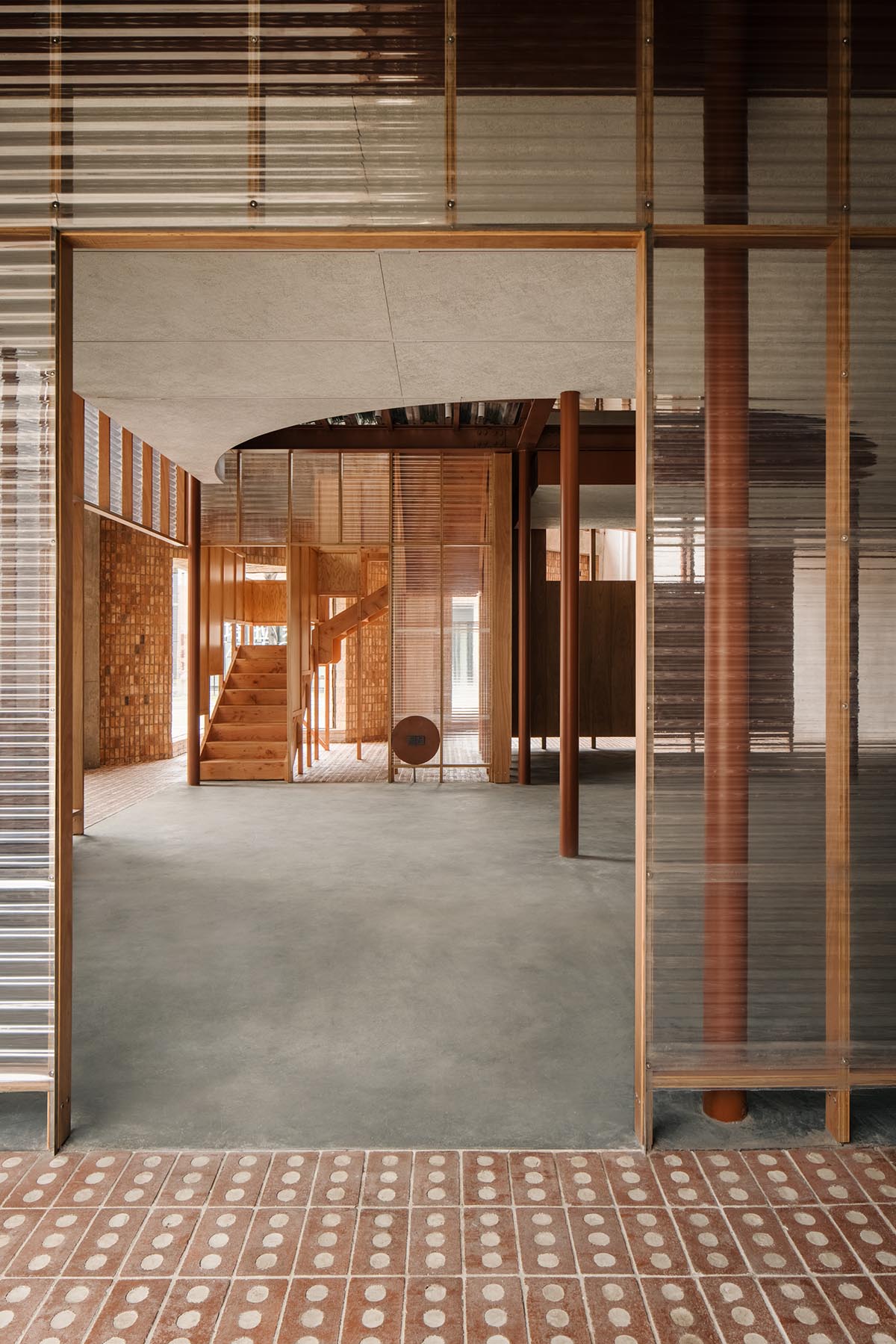
The team used common industrial materials, particularly standard steel beam, profiles, timber and bricks, creating the finish of project structure regardless of cost and grading, roughness or smoothness.
"By adopting this material selection, we aspire to eliminate the hierarchy, simultaneously making no distinctions in Ziin Store," the studio continued.
"The inherited character of ordinary materials was studied and their juxtaposition were re-combined on one elevation, narrating an embodiment of every detail design while projects a warm and fun scene."
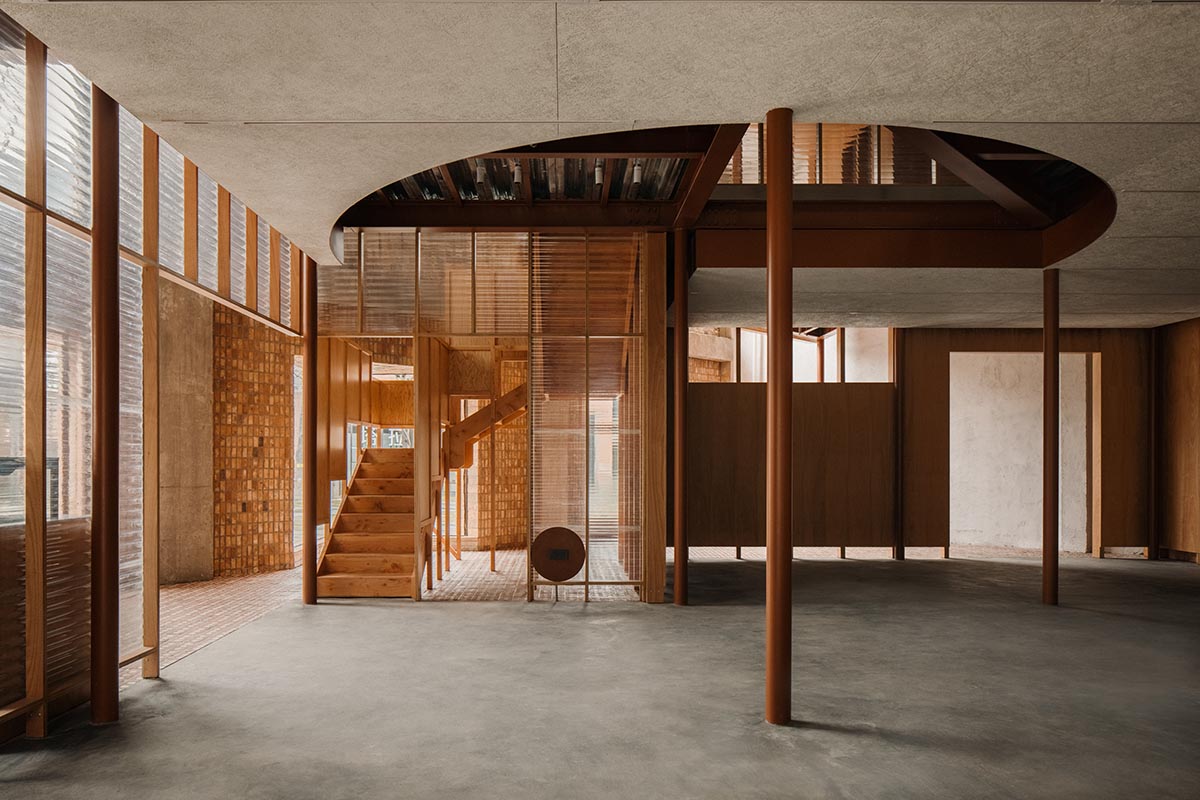
The studio describes the project as "an effective cost-control project" that uses basic formal logic by using mundane materials and construction techniques to deliver a deep expression of adaptive re-use space and details.
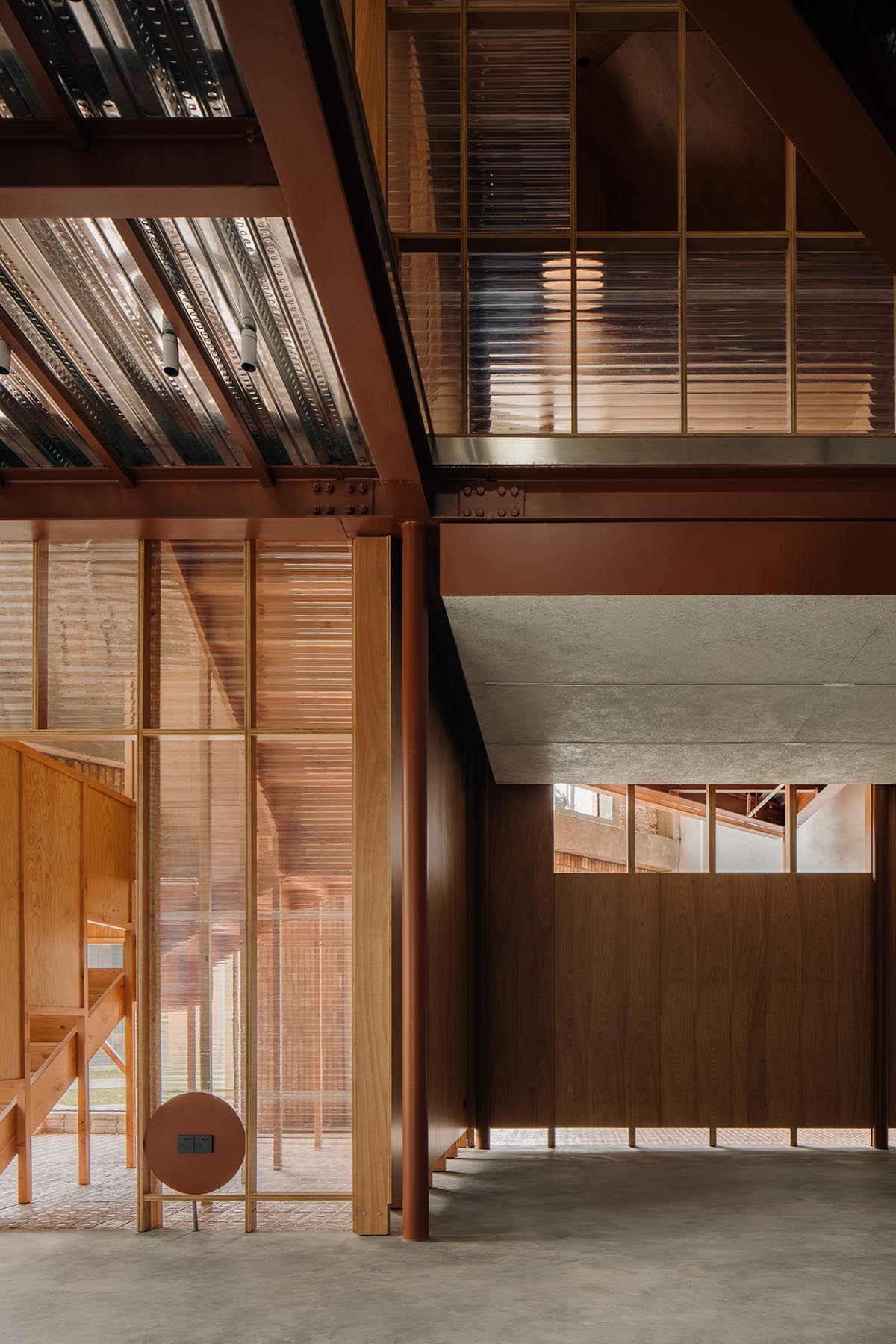
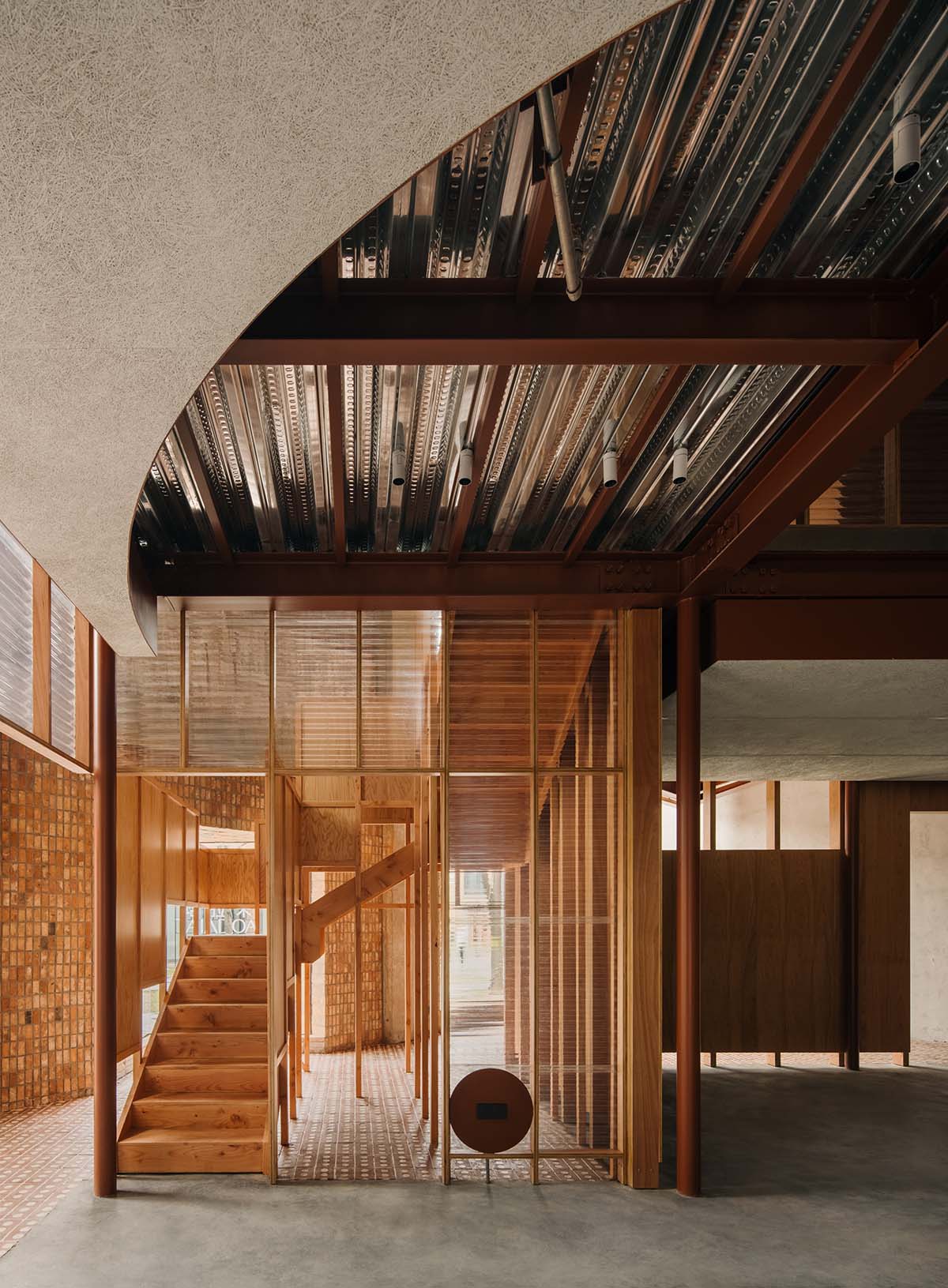
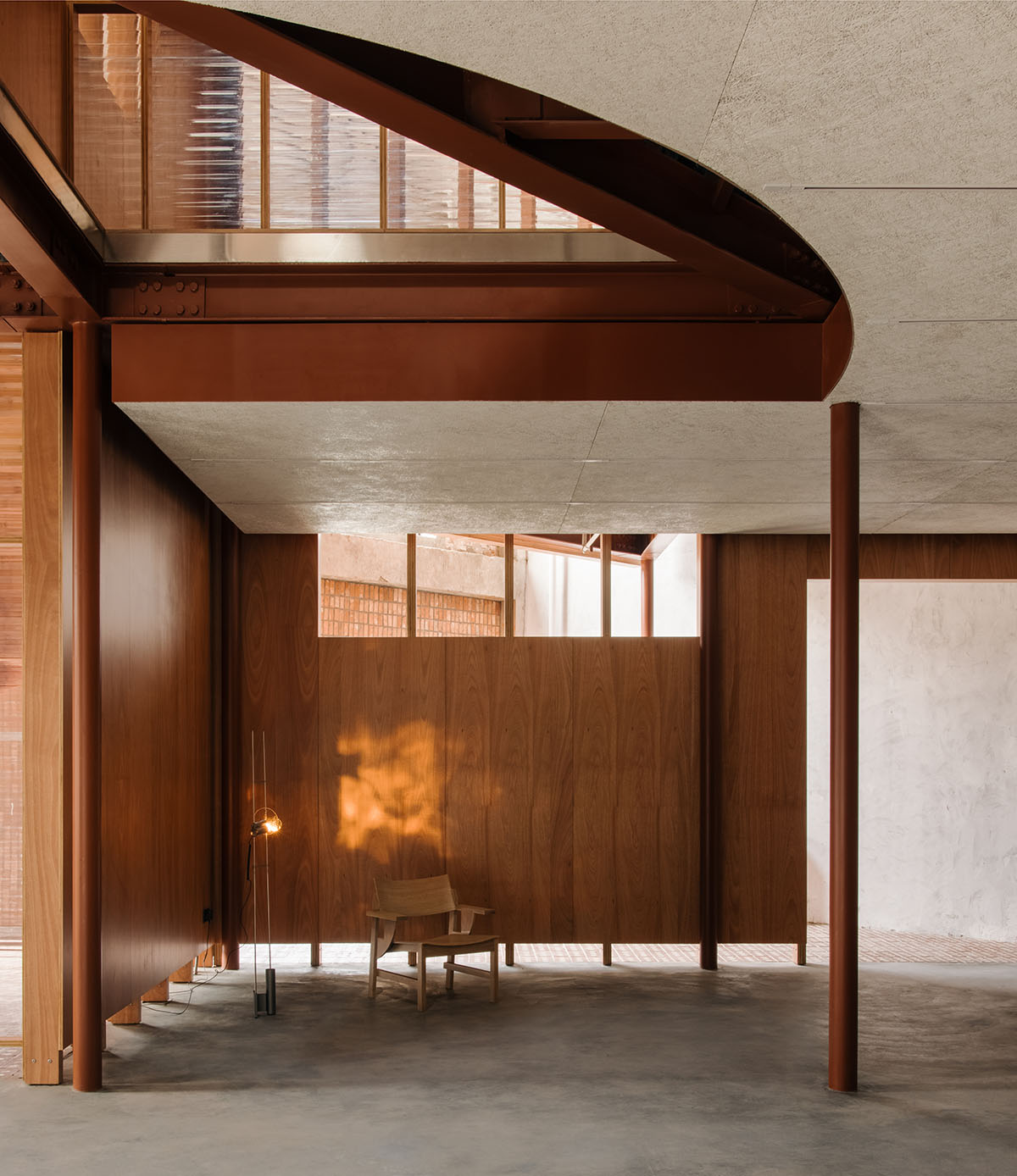
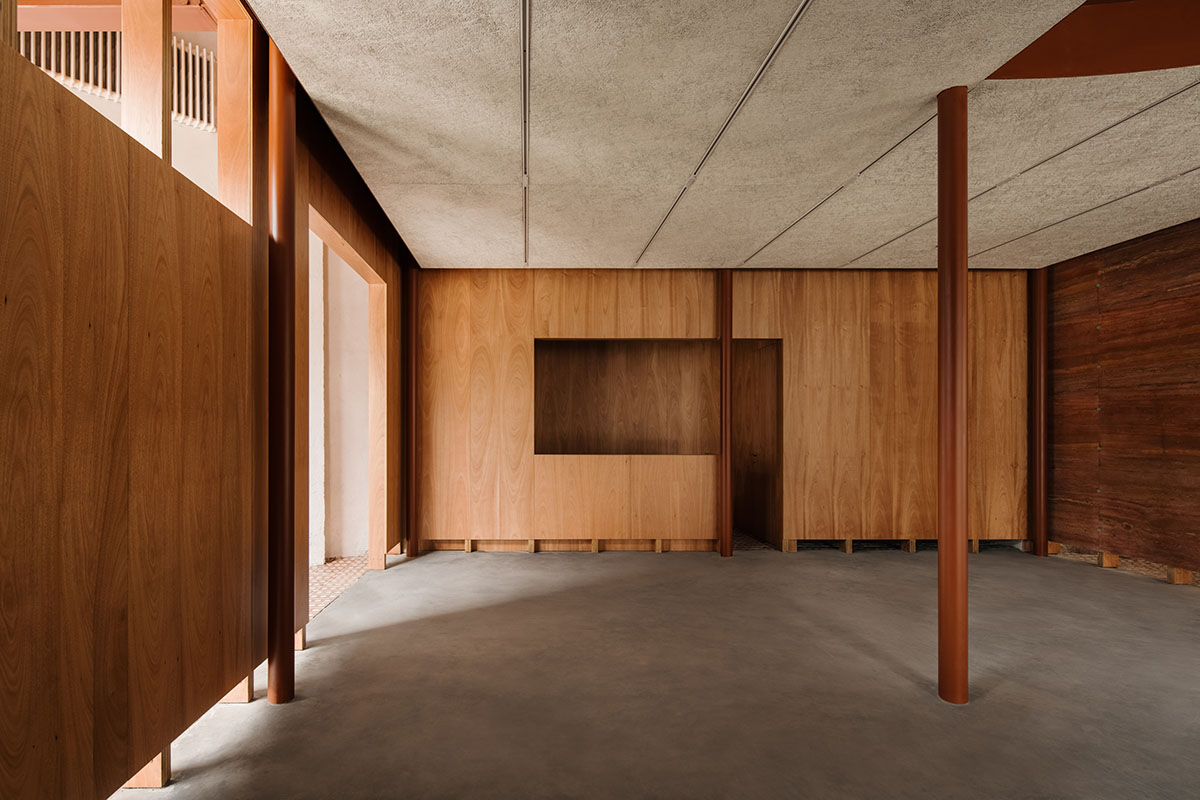
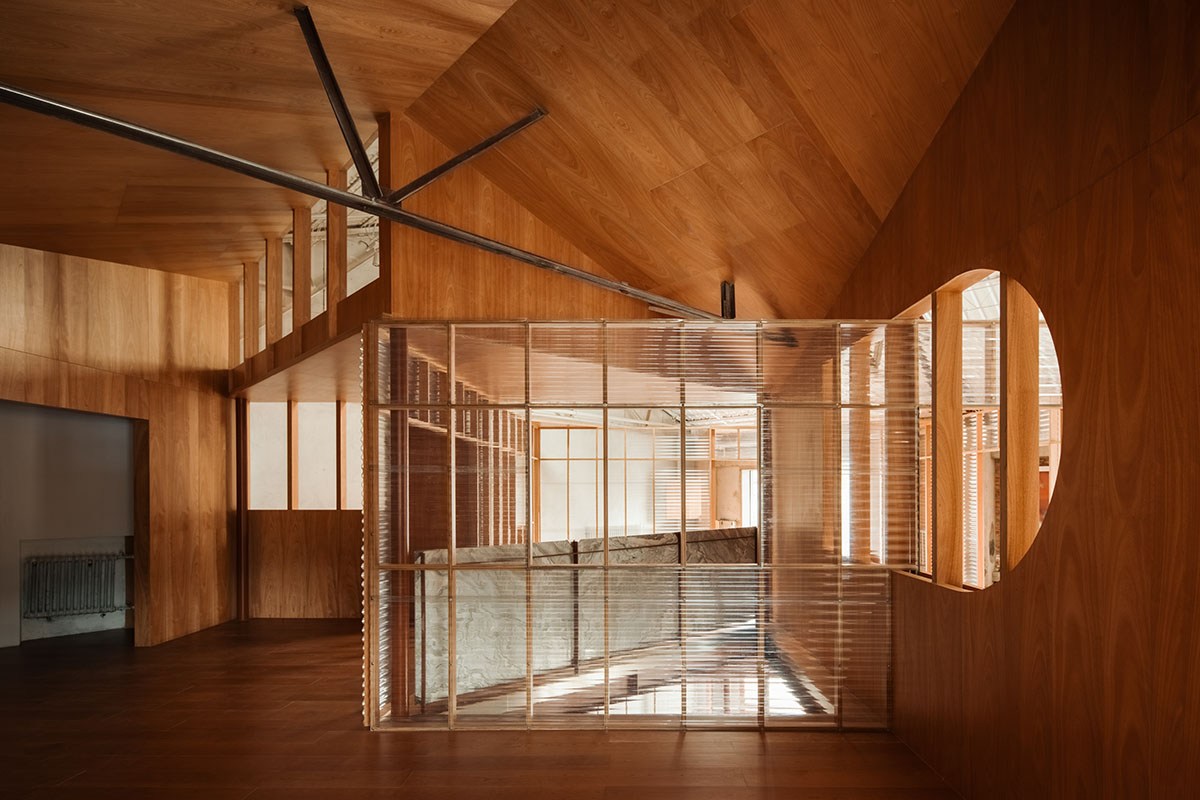
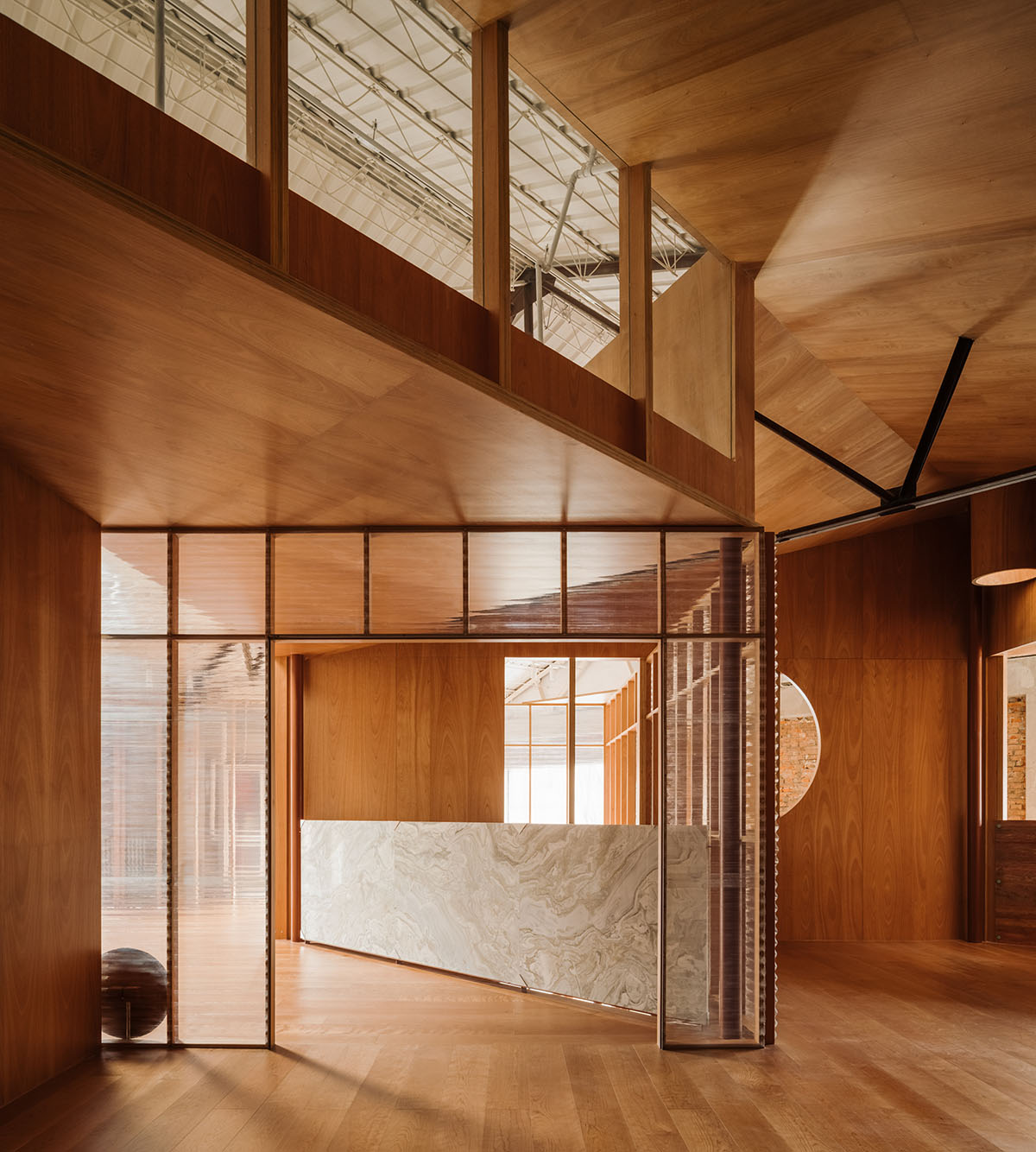
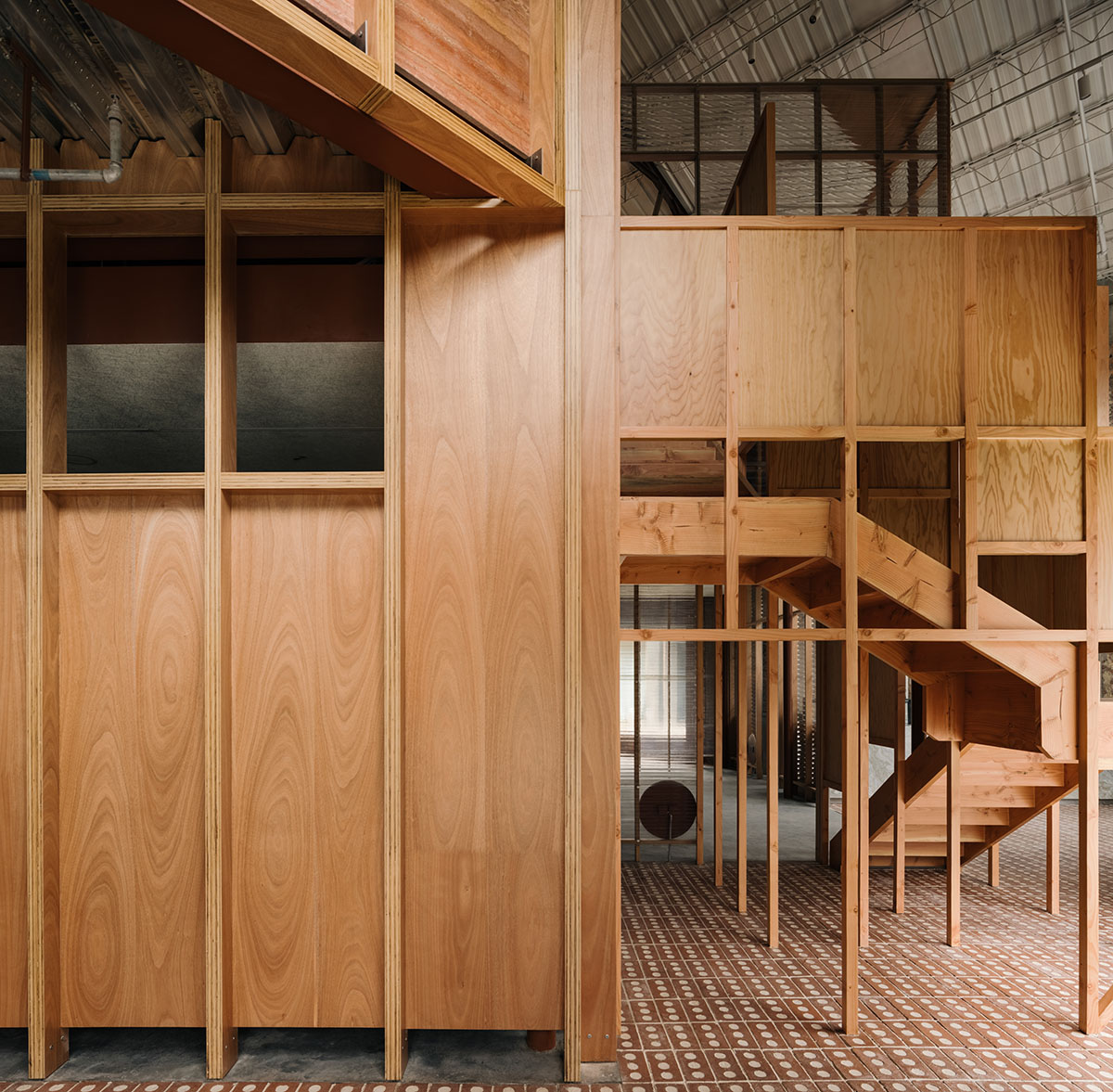
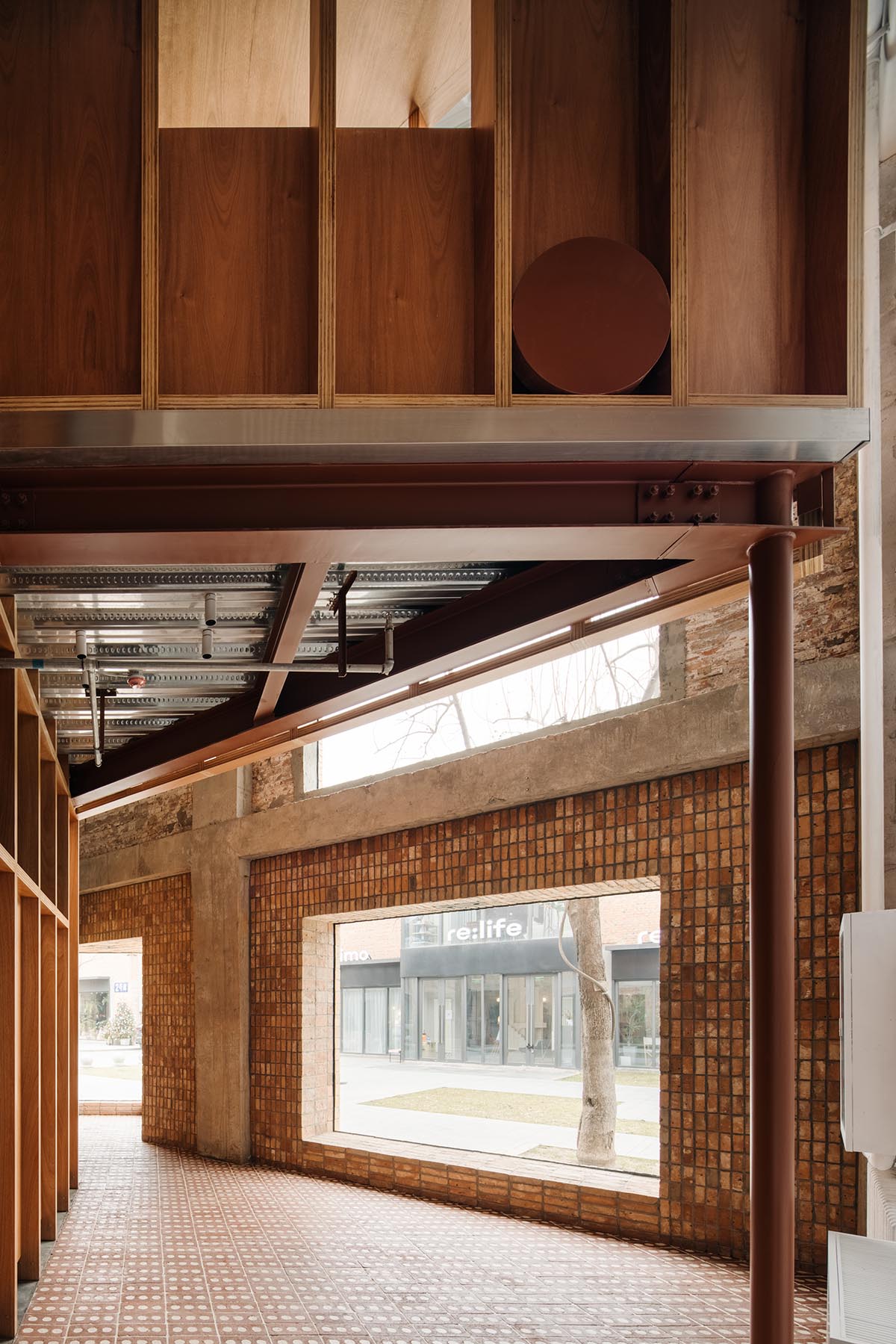
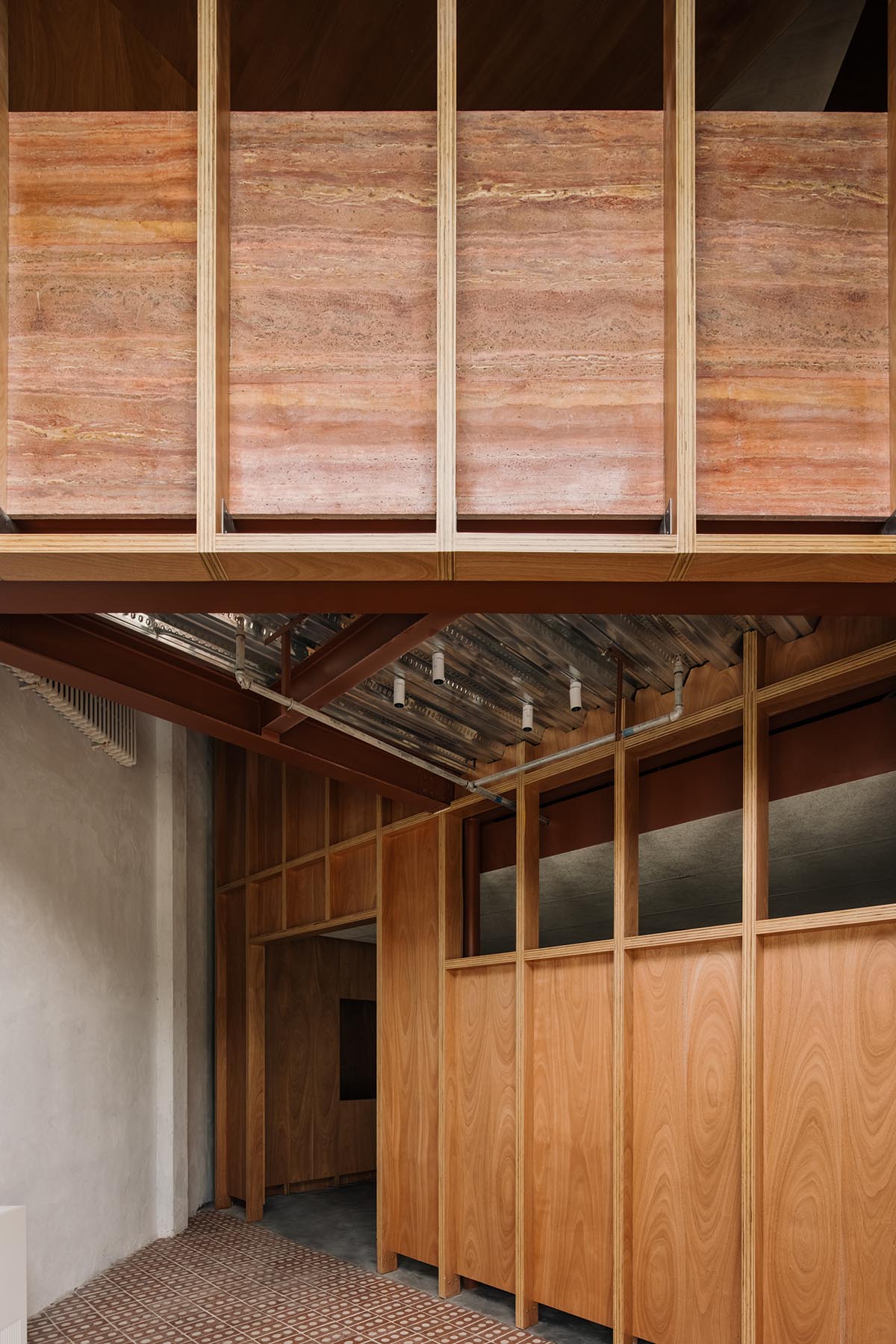
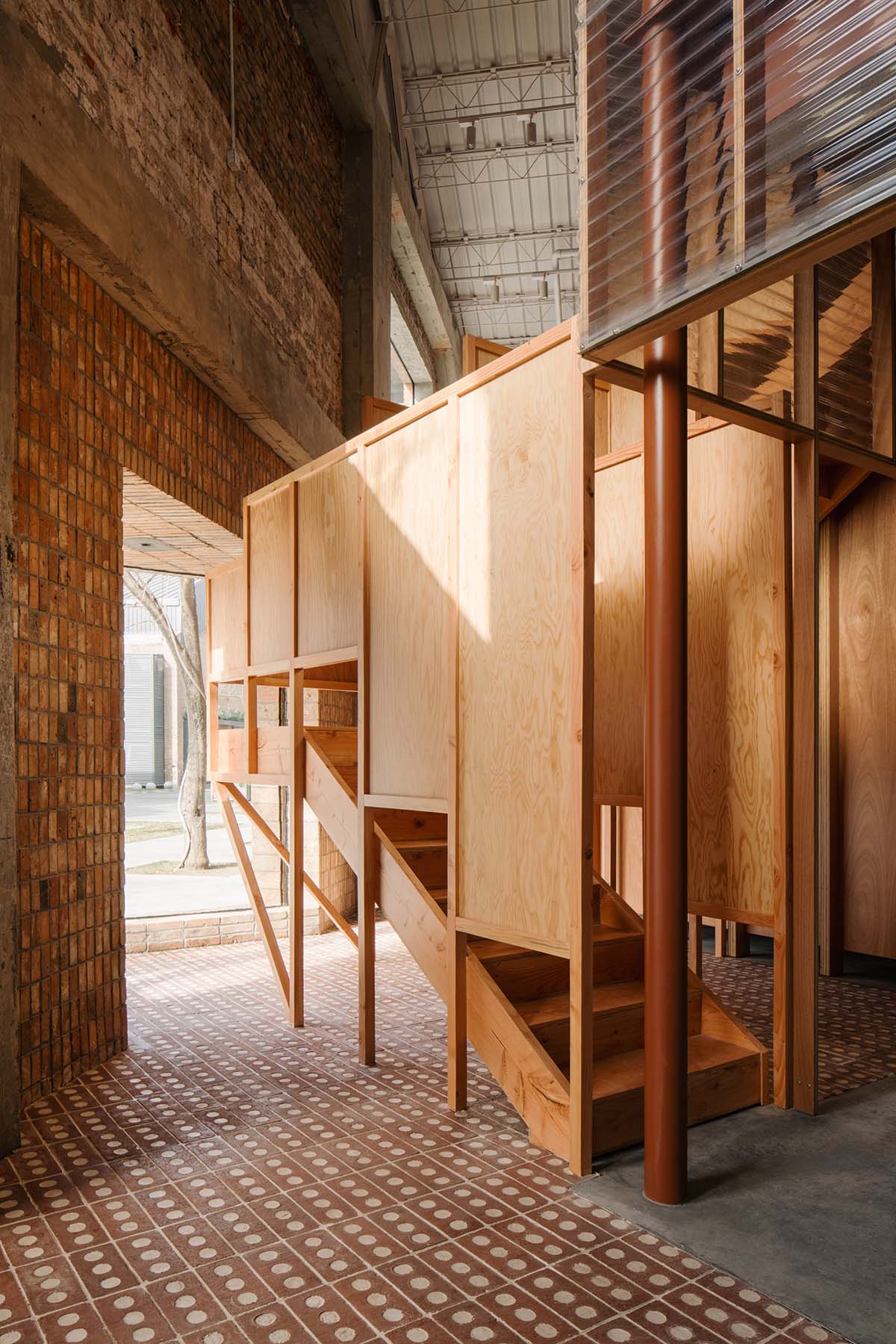
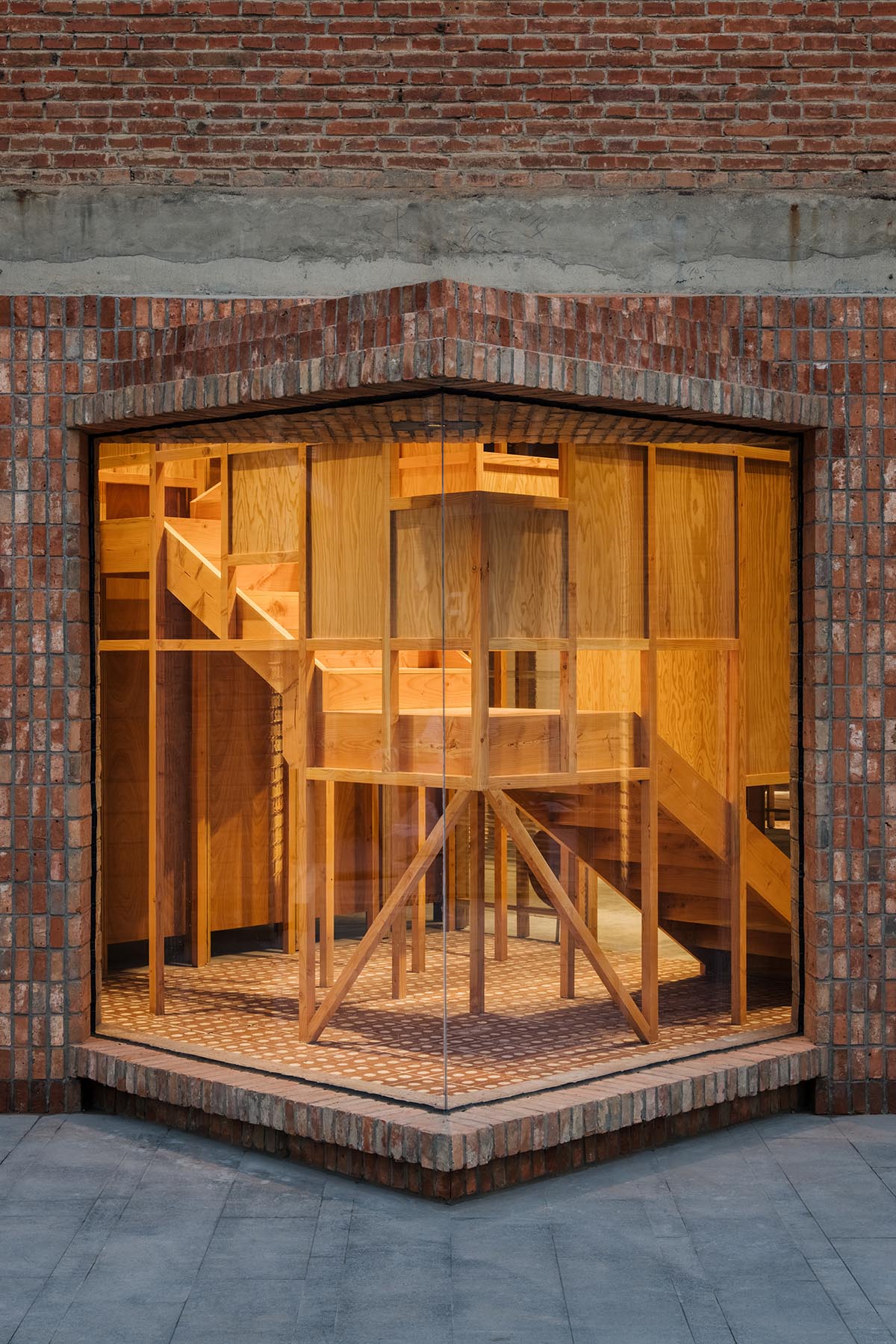
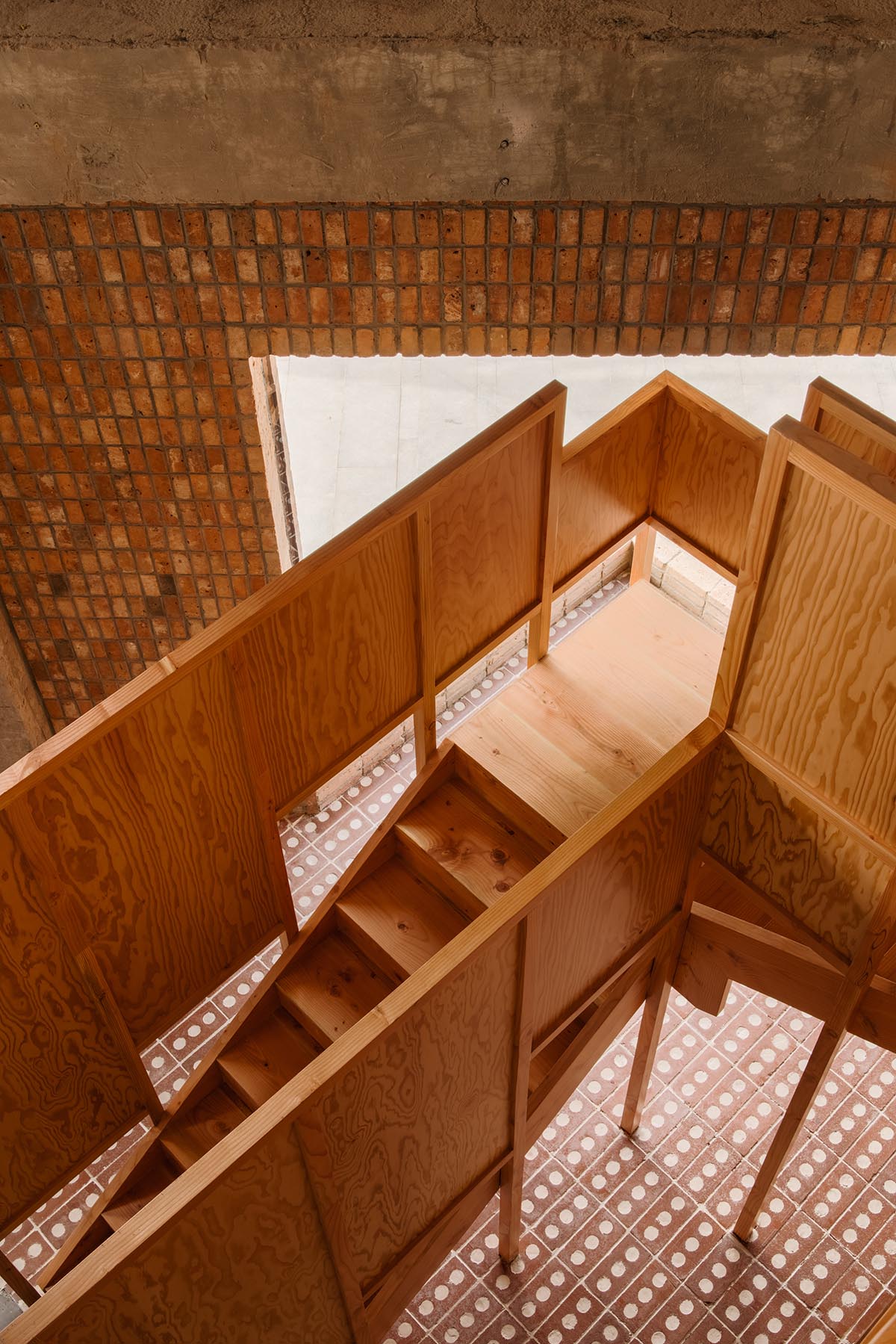
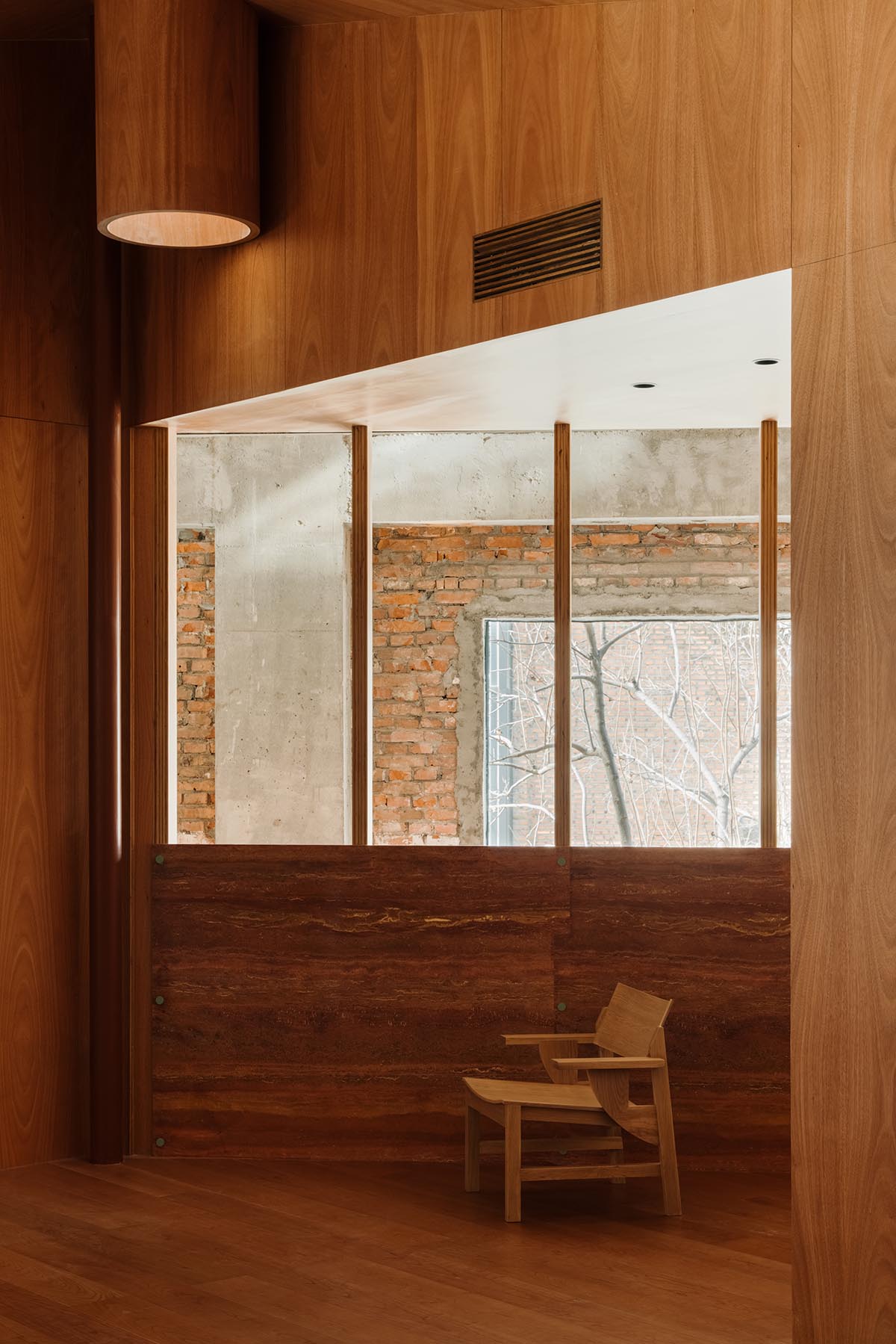
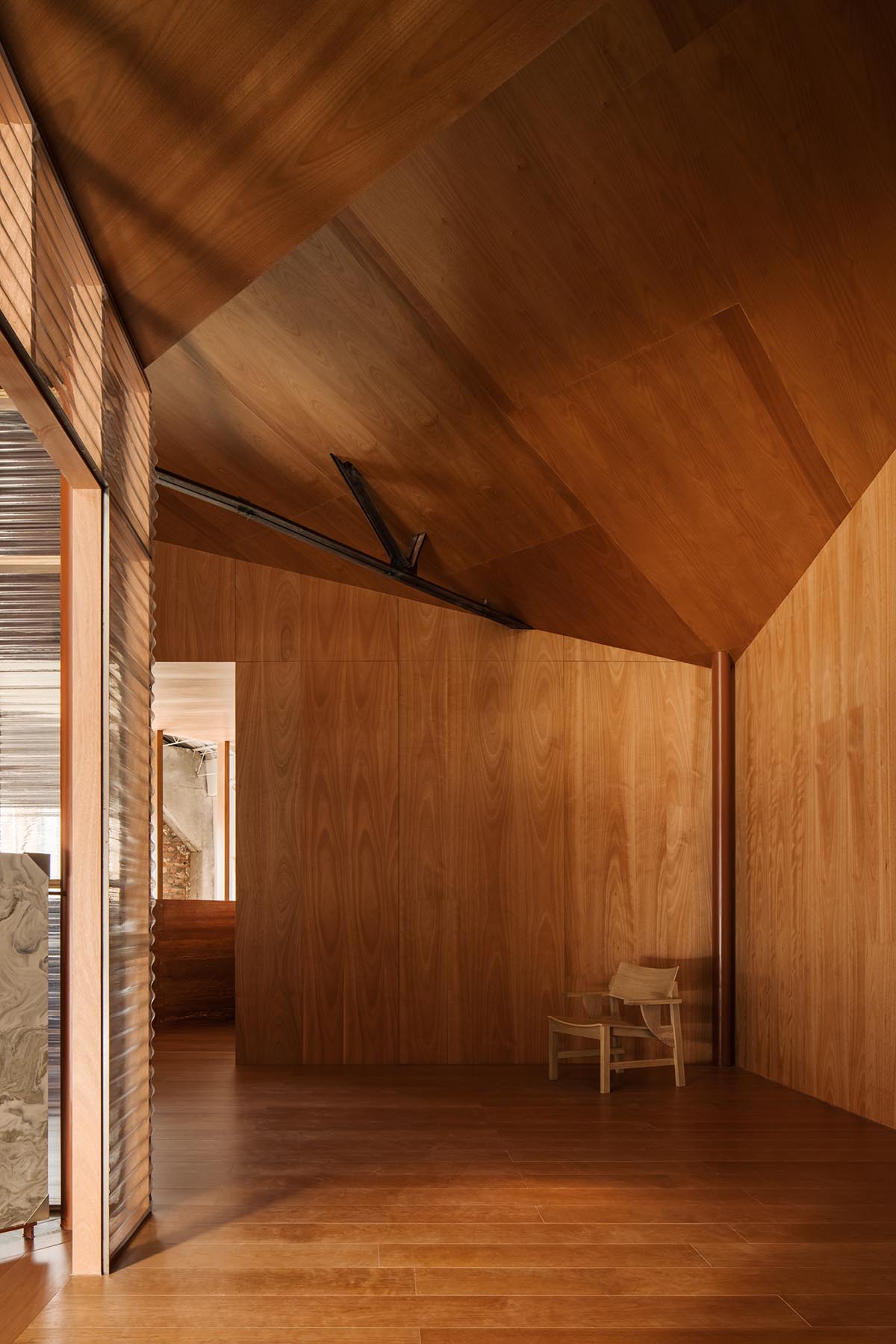
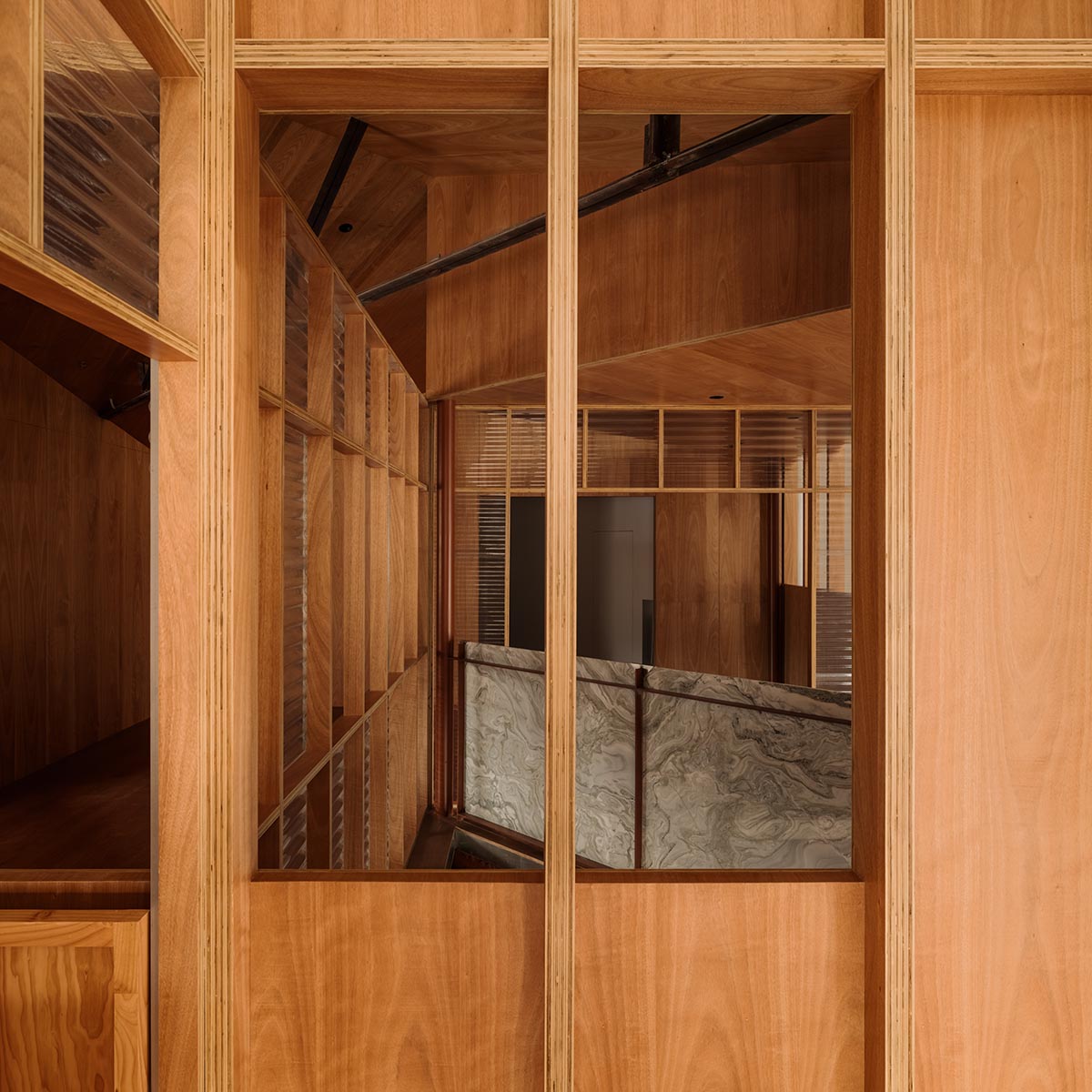
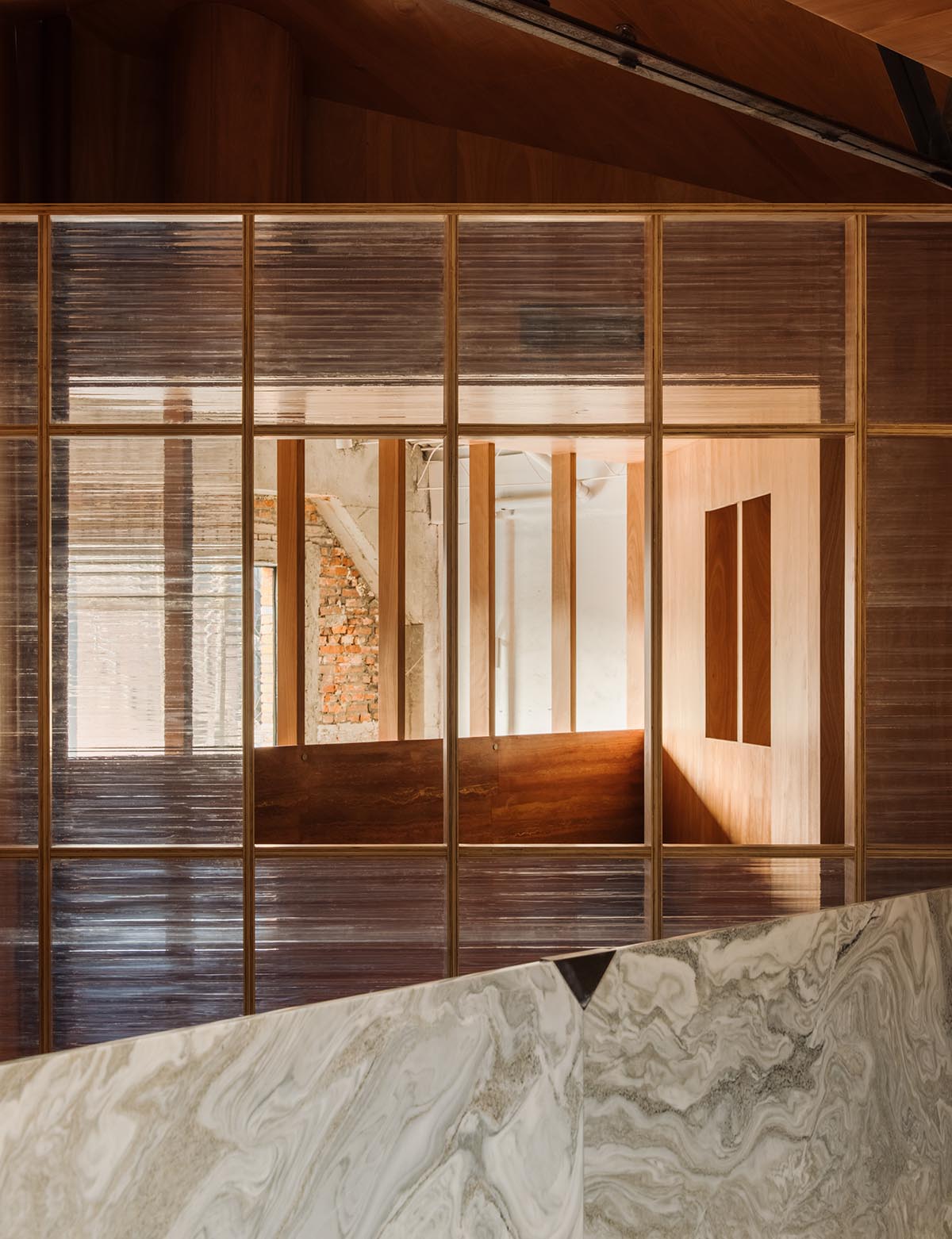
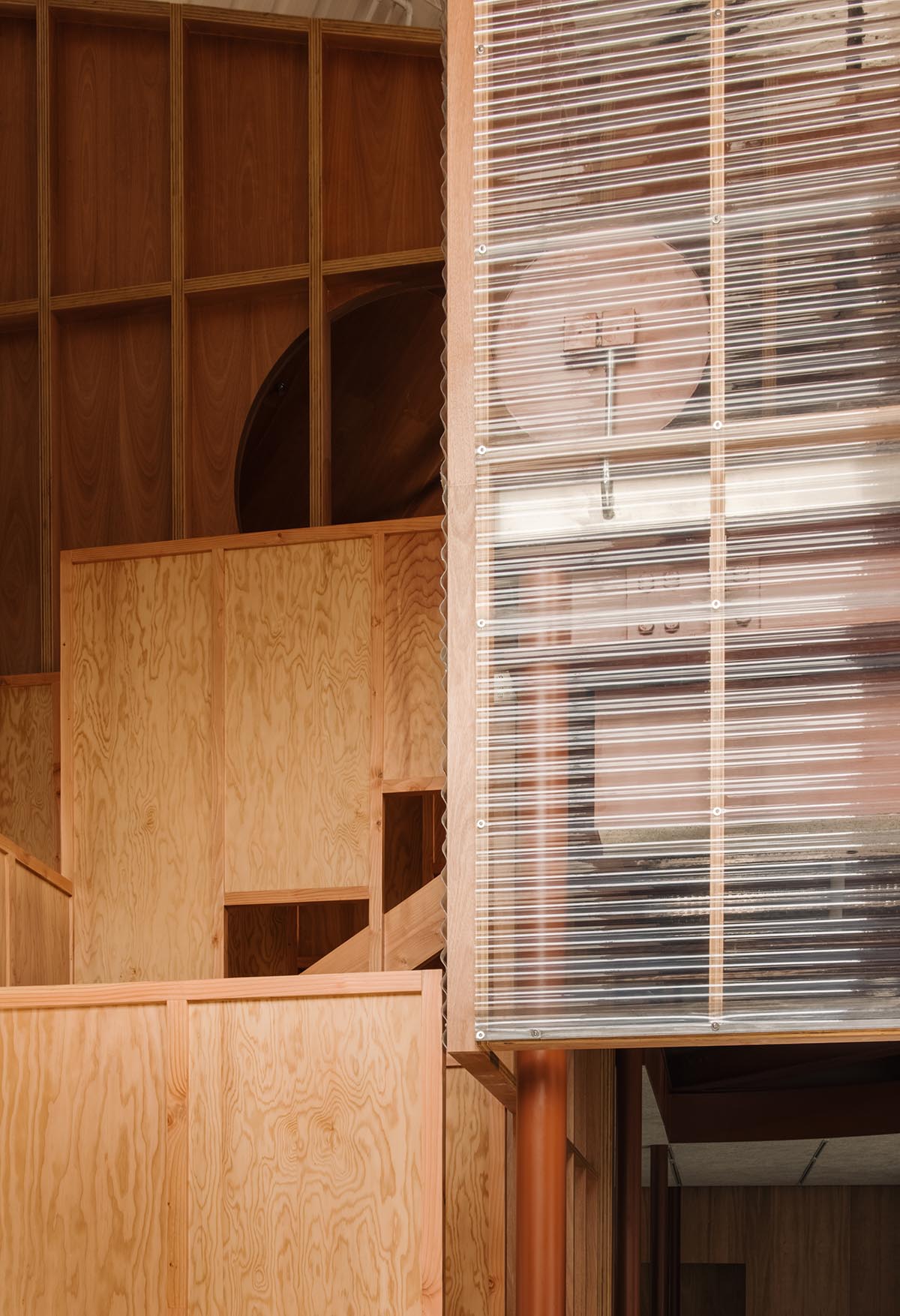
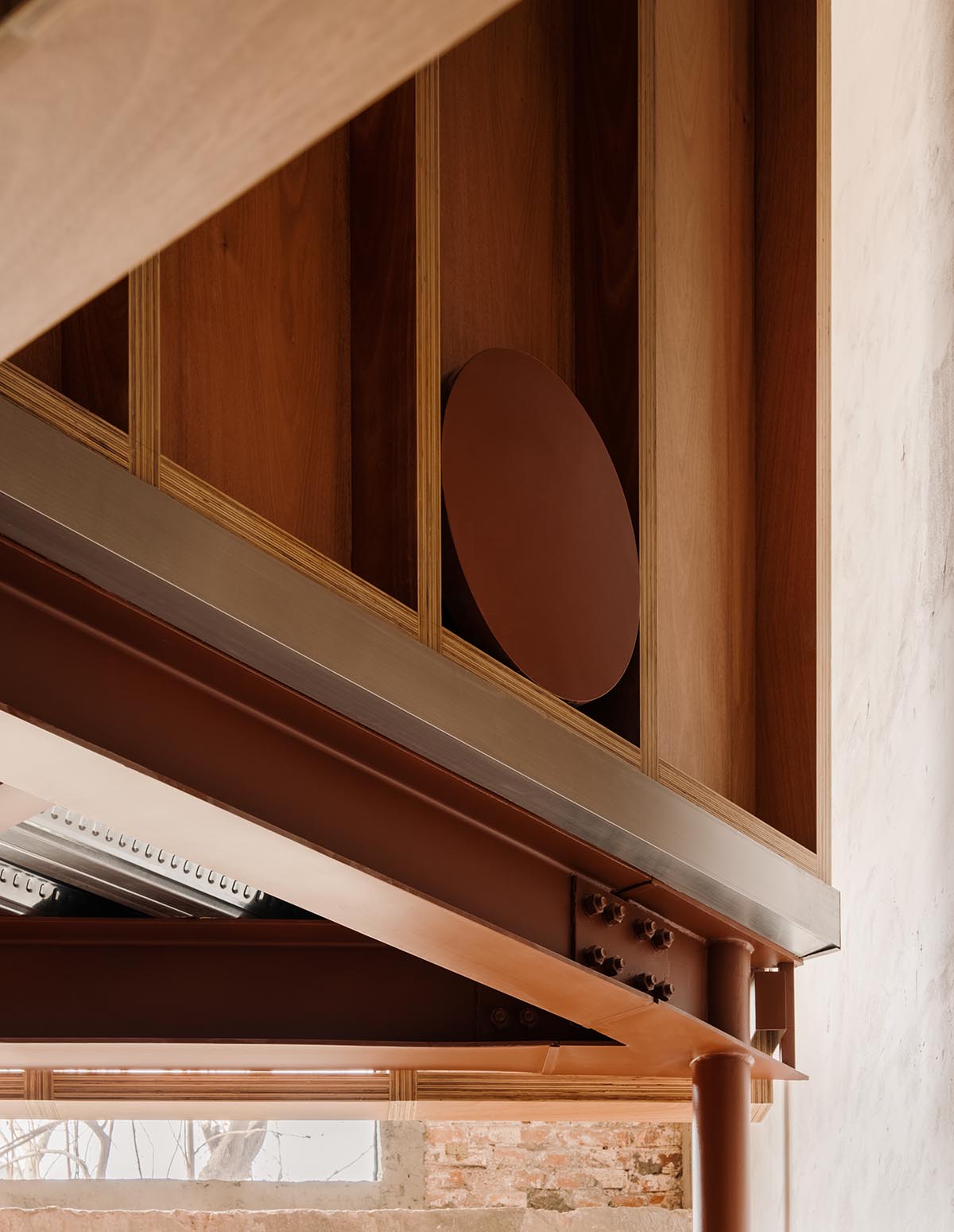
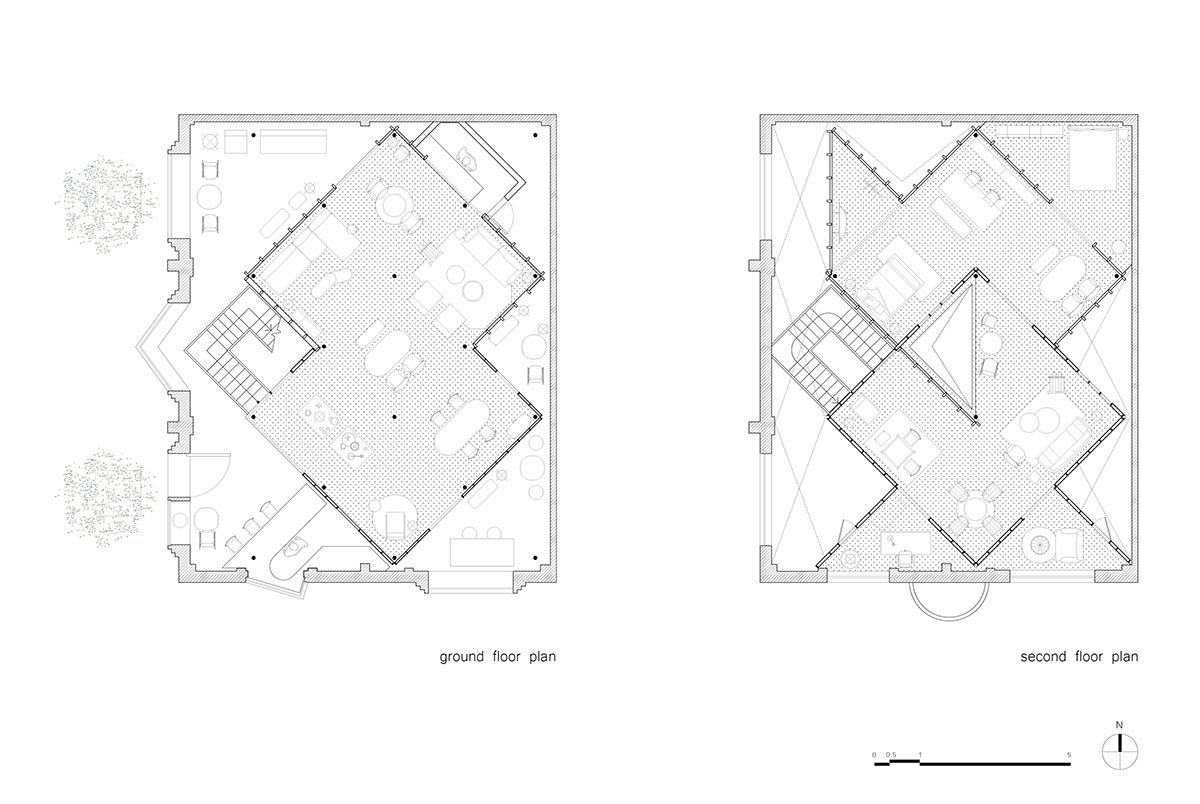
Floor plans
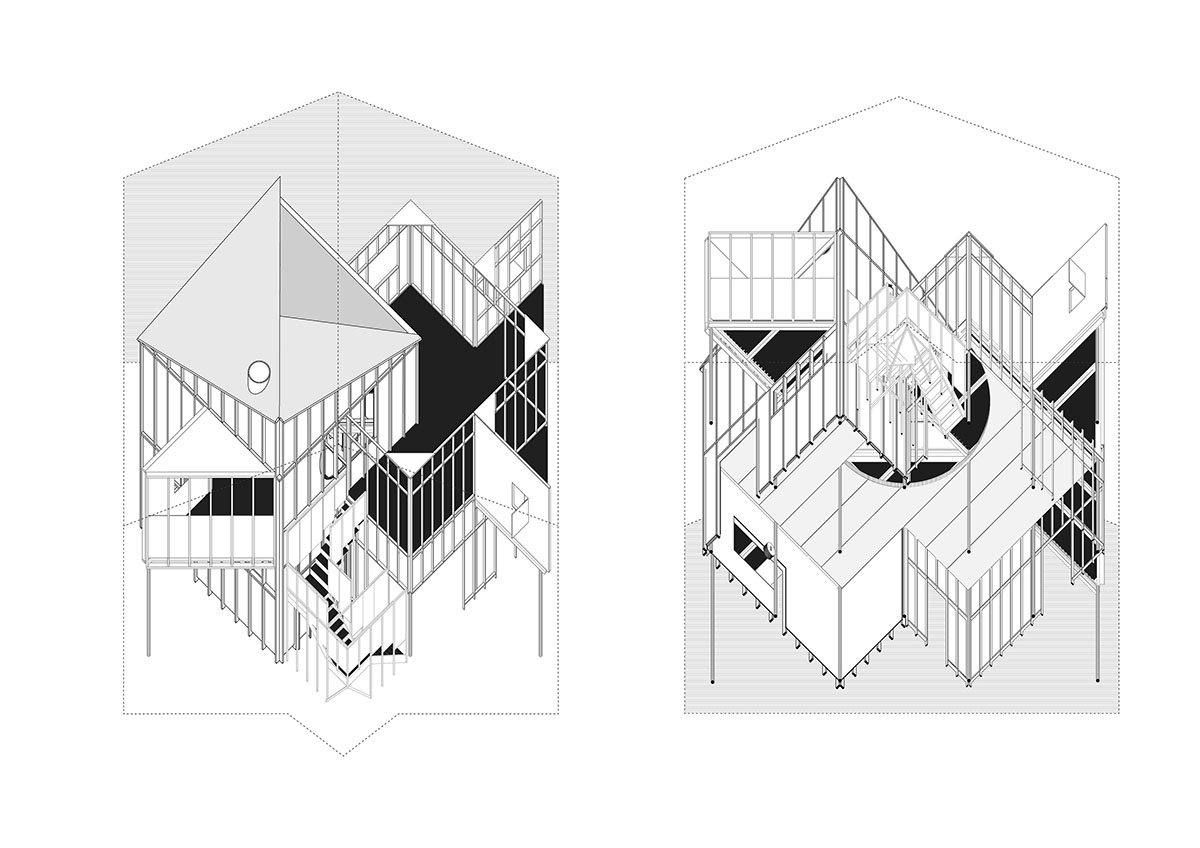
Axonometric drawing
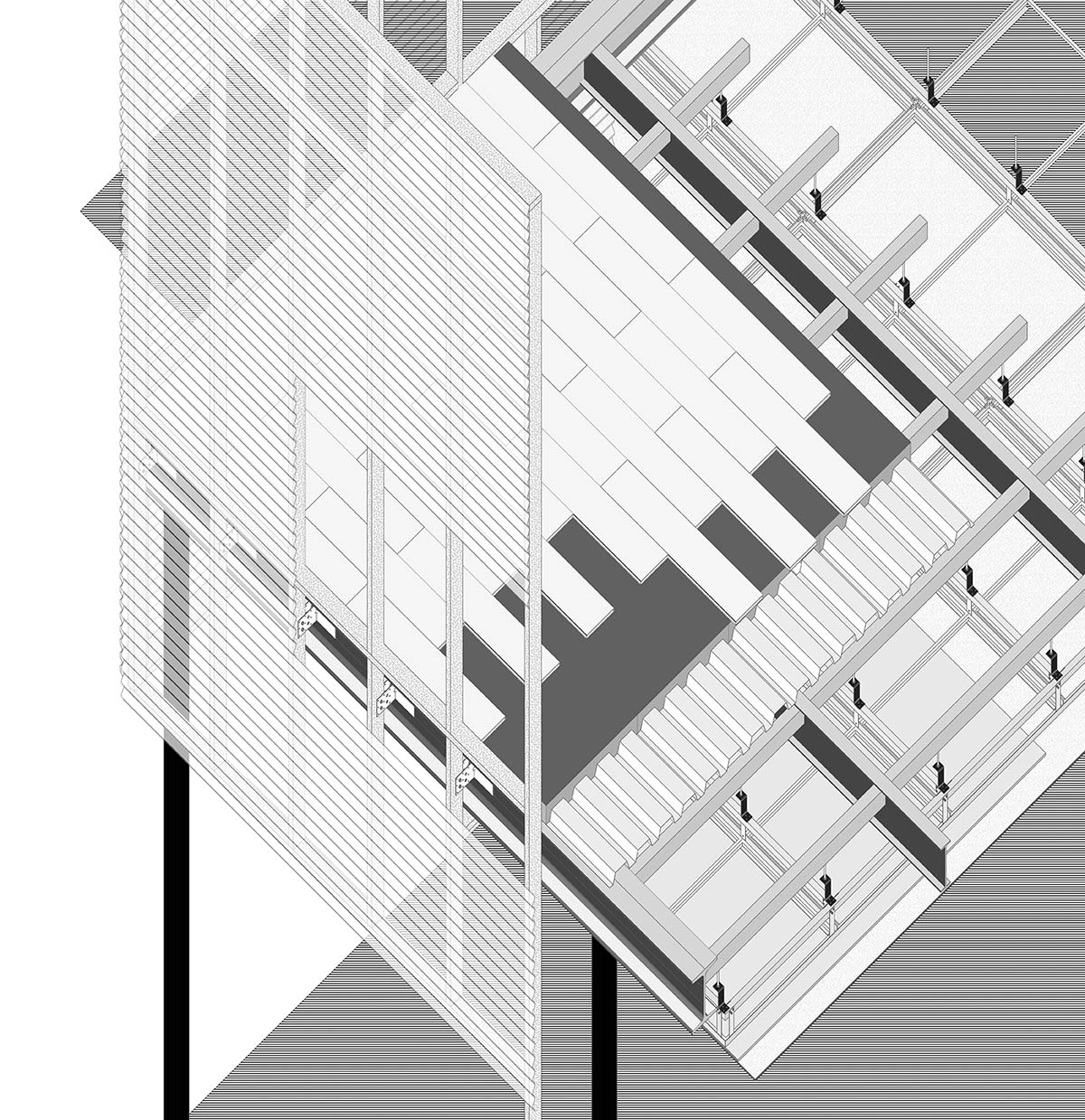
Detail drawing
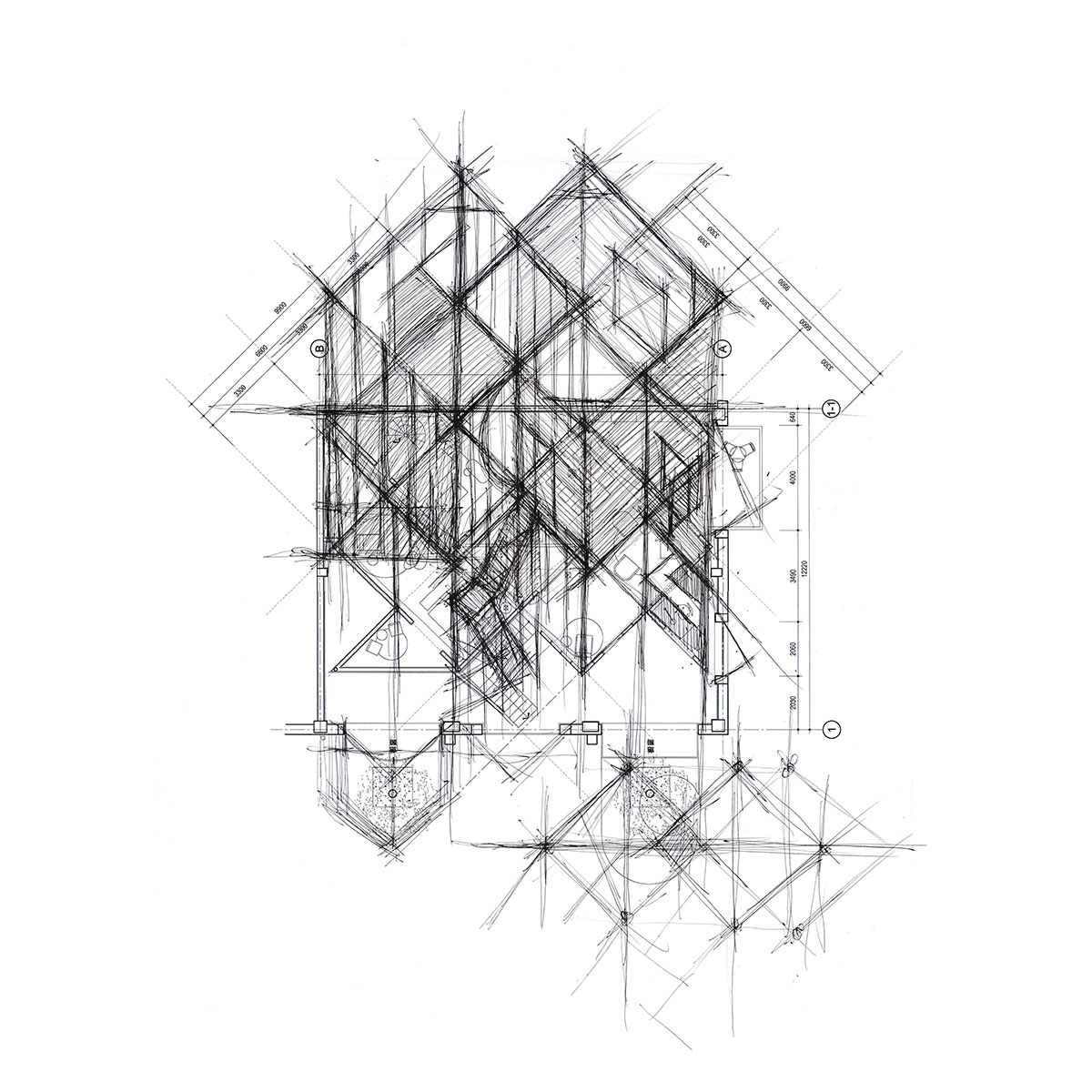
Sketch
Atelier tao+c previously designed a reading room with a shared study room with semi-circular bookshelves in Shanghai, China. The firm converted the ground floor of a 1930’s old house into a new boutique retail space of SPMA in Shanghai.
Project facts
Project name: ZIIN Beijing Store
Architects: Atelier tao+c
Location: Beijing, China
Size: 186m2
Completion date: March 2022
Design team: Tao Liu, Chunyan Cai, Haojia Song, Weilu Wang, Jingying Cai (intern)
Materials: ashtree laminated board, corrugated polycarbonate panels, firber cement board, brick, marble
Construction firm: Shanghai Tianci Architecture Deco, Limited, Co
All images © Wen Studio.
All drawings © Atelier tao+c.
> via Atelier tao+c
